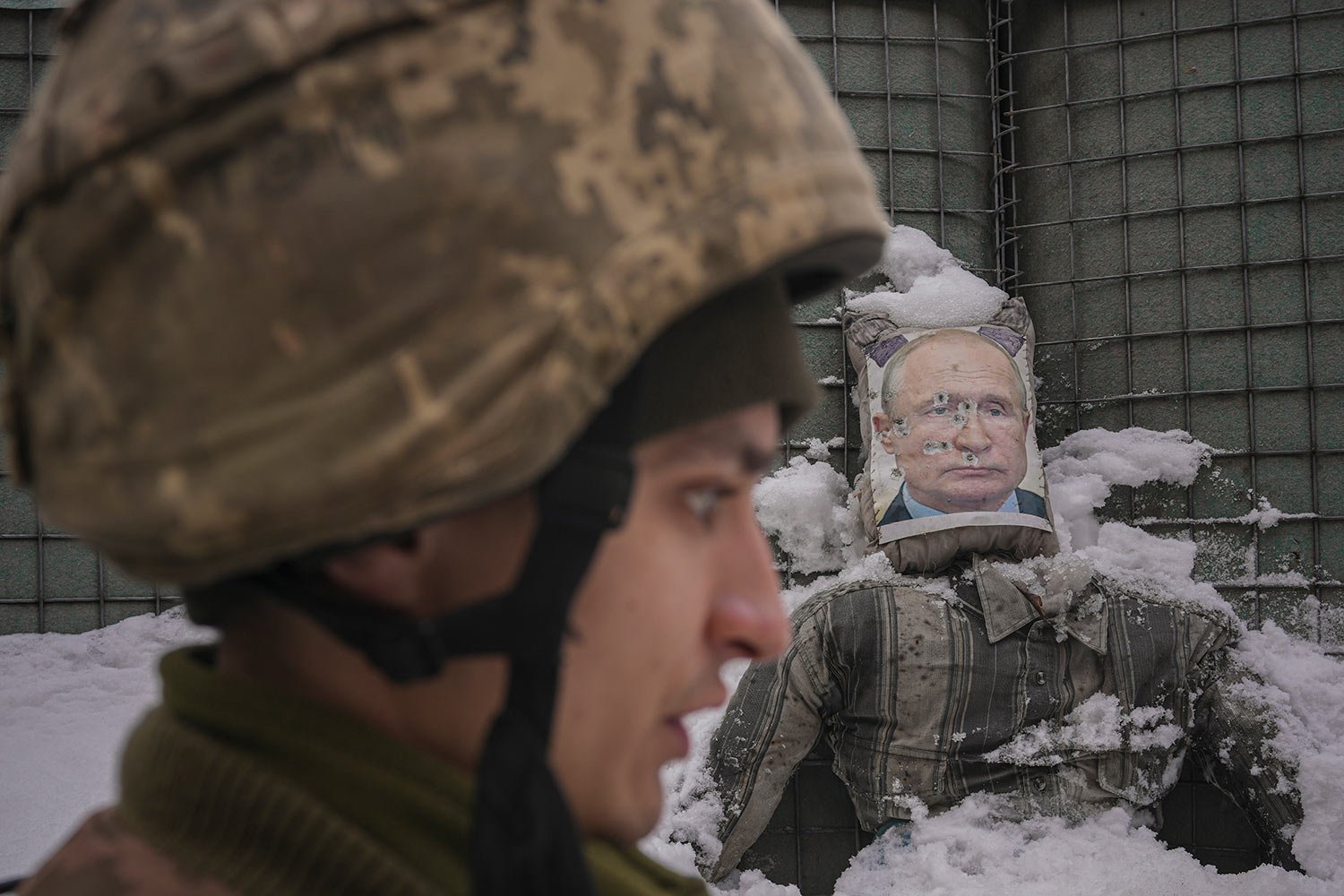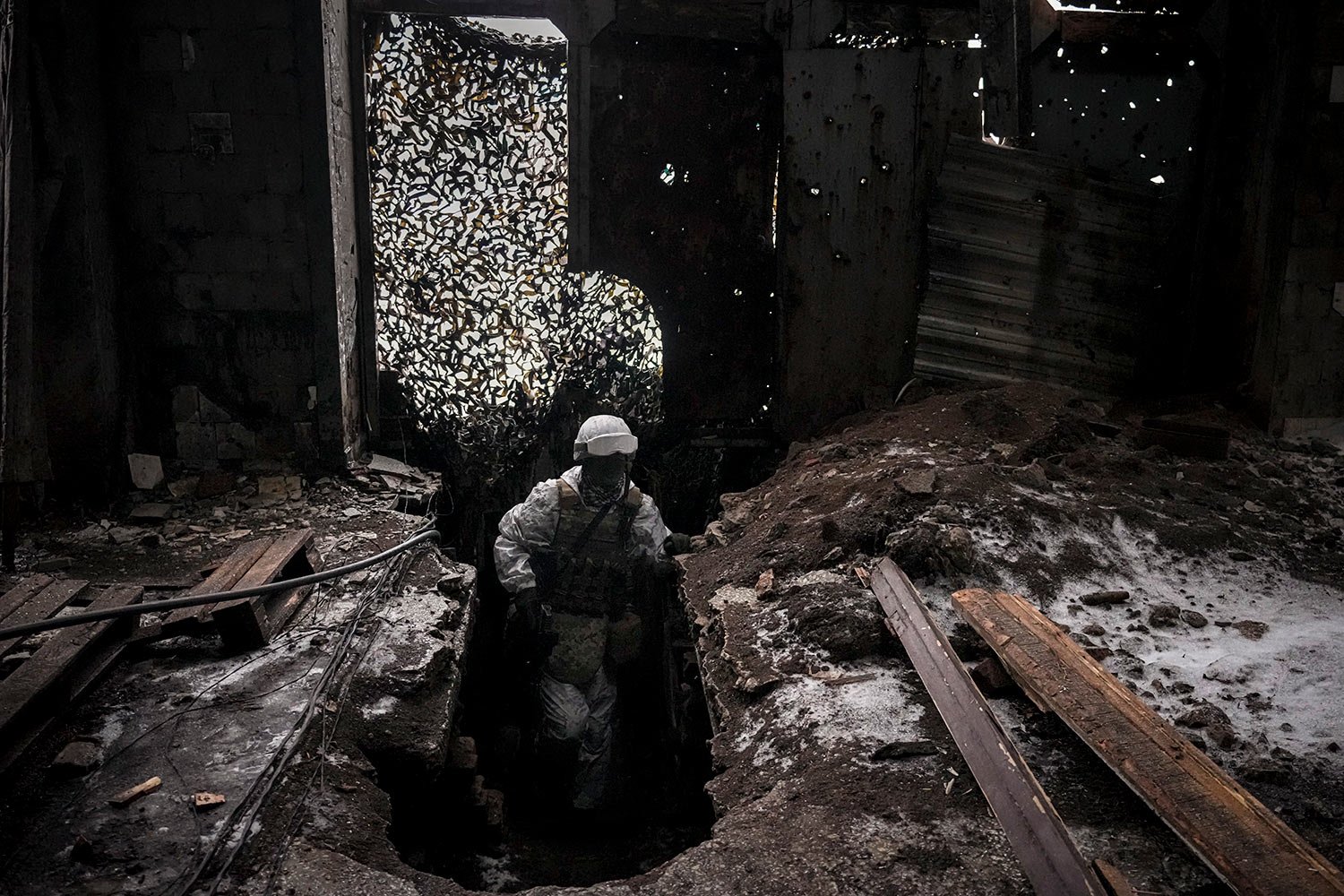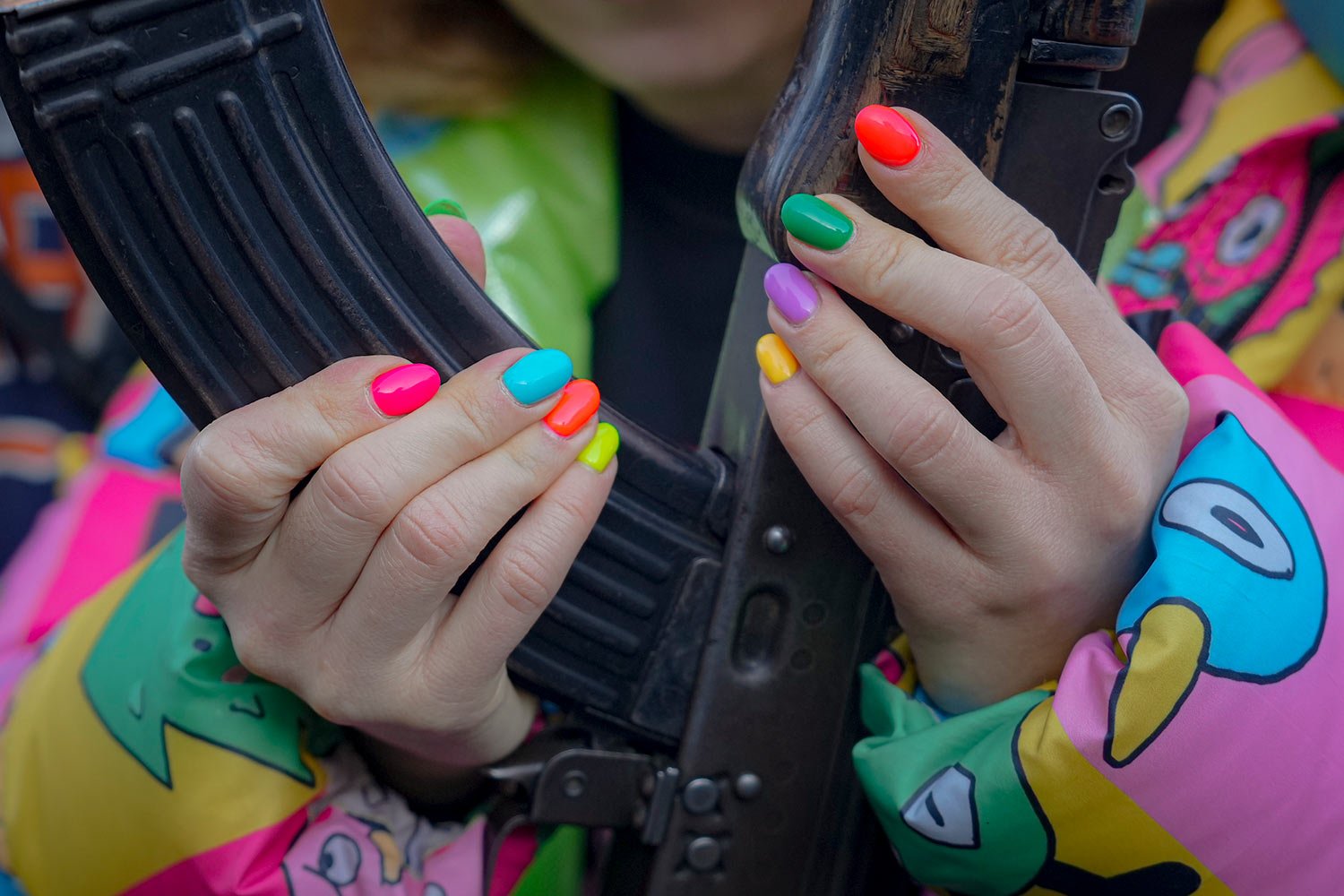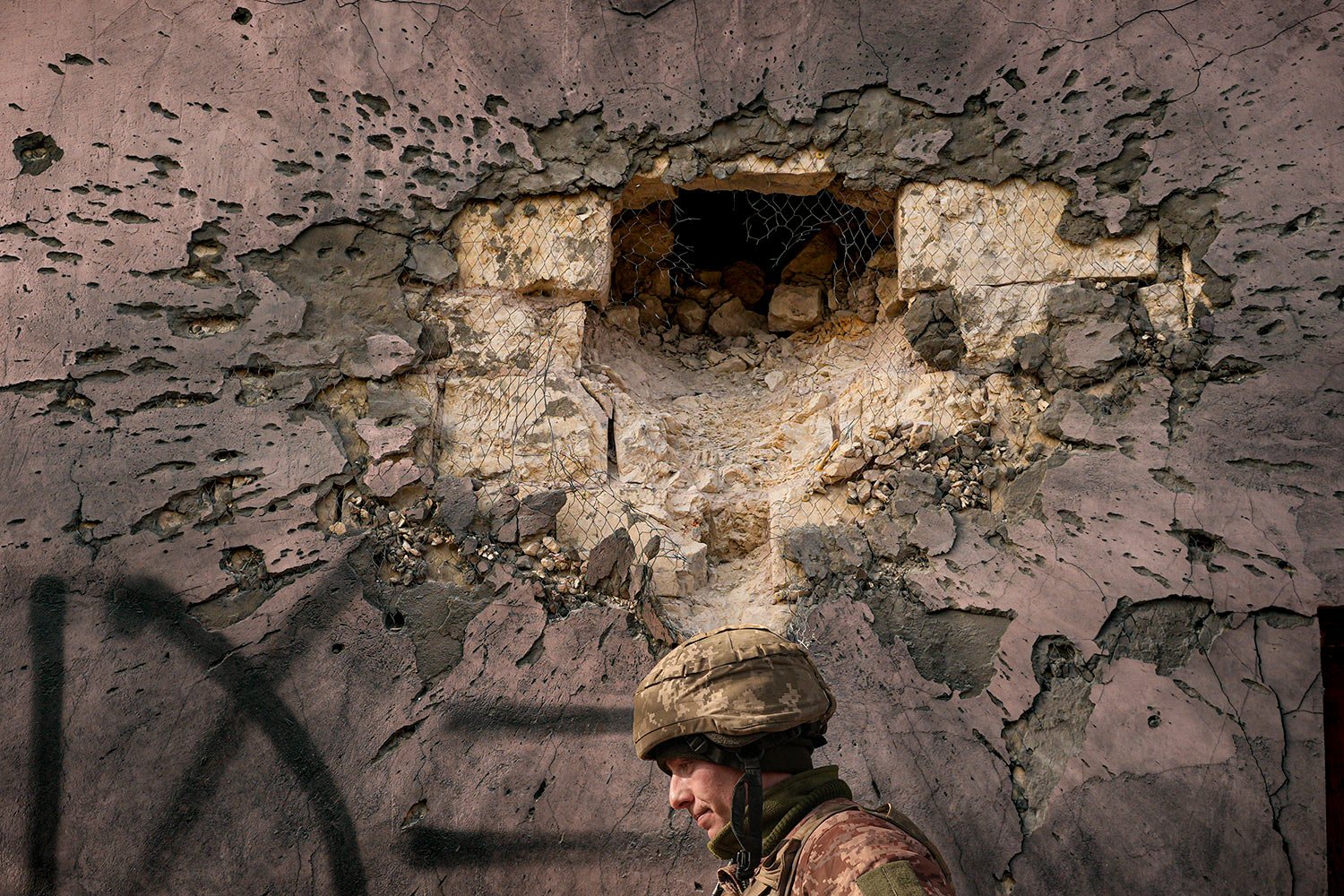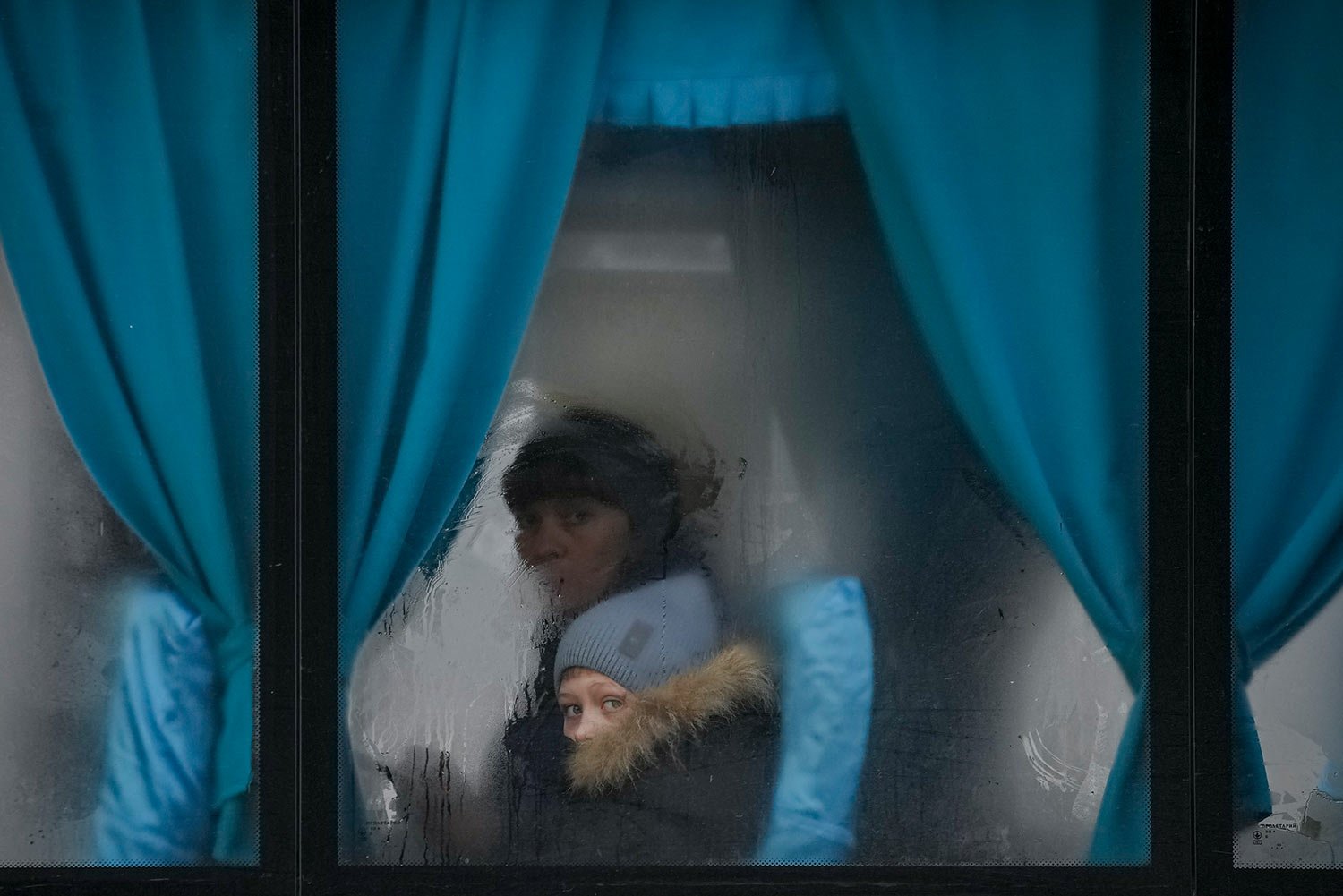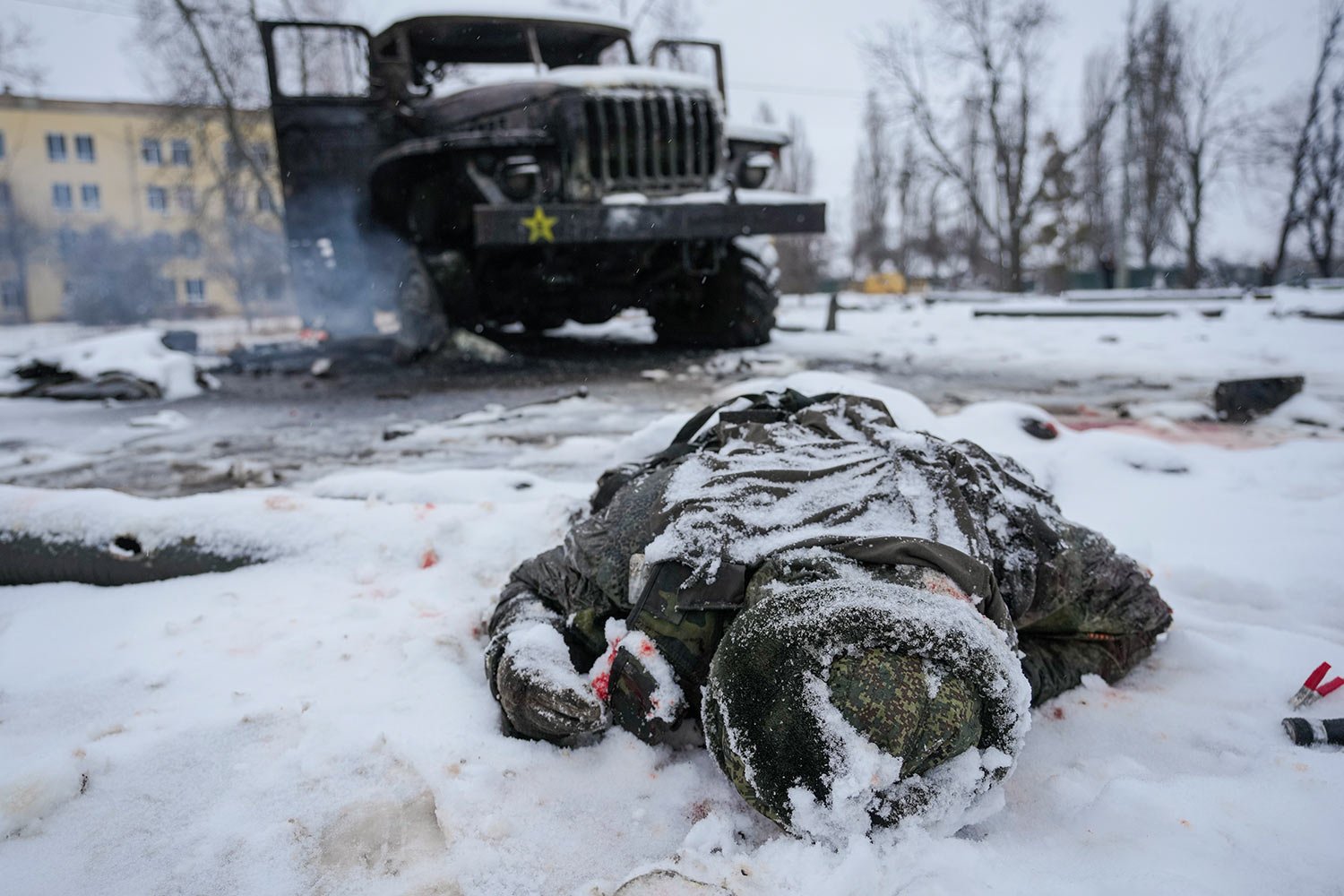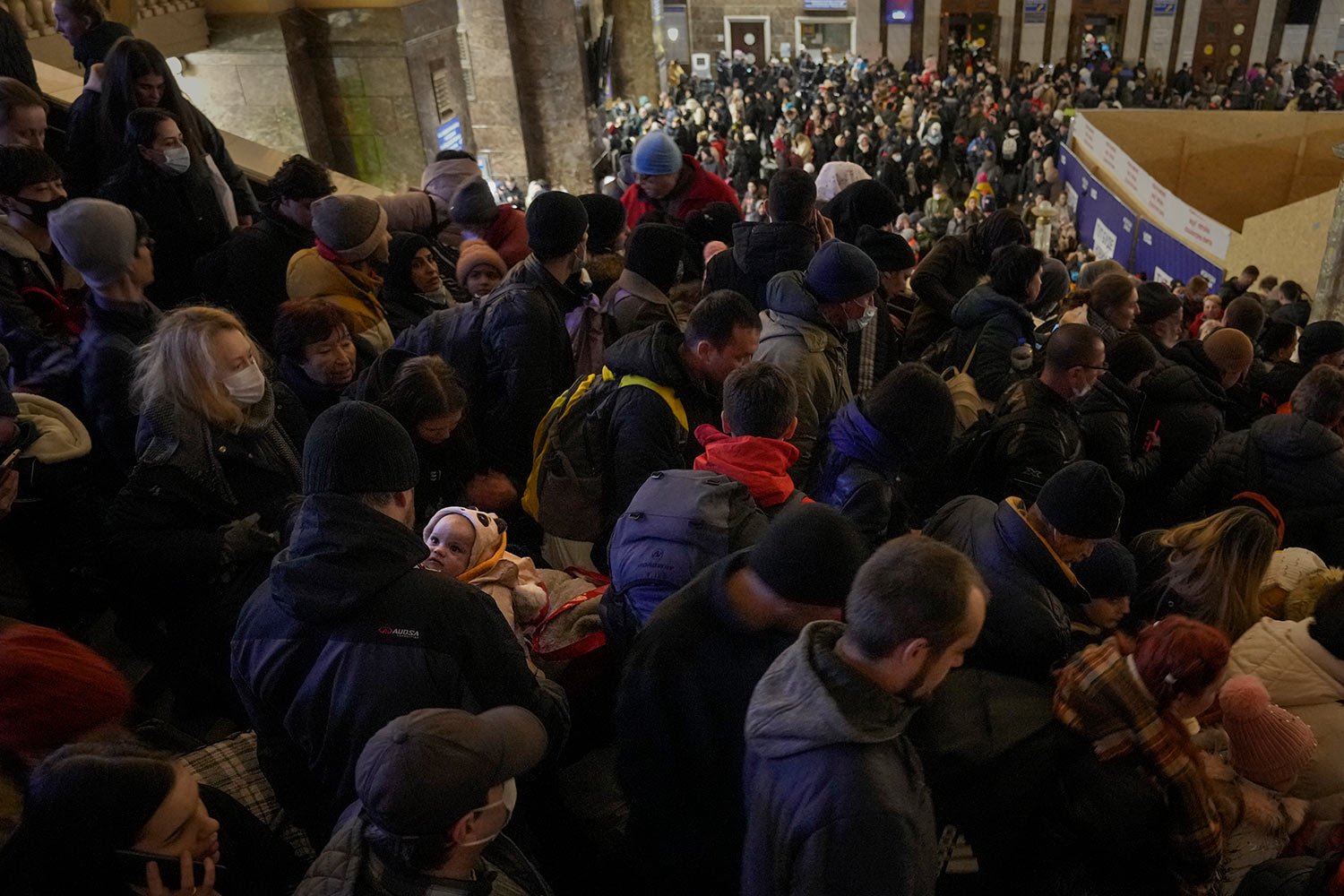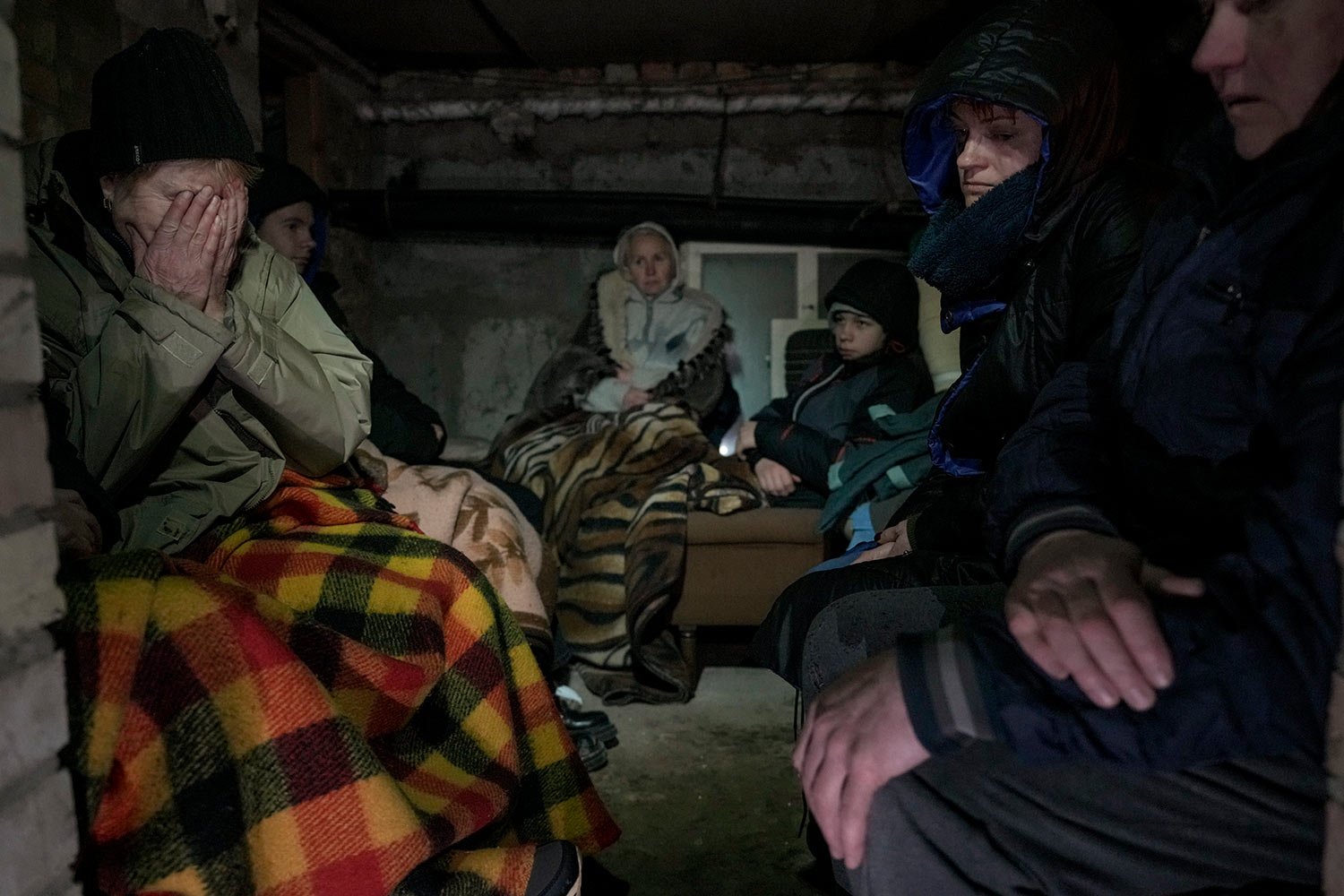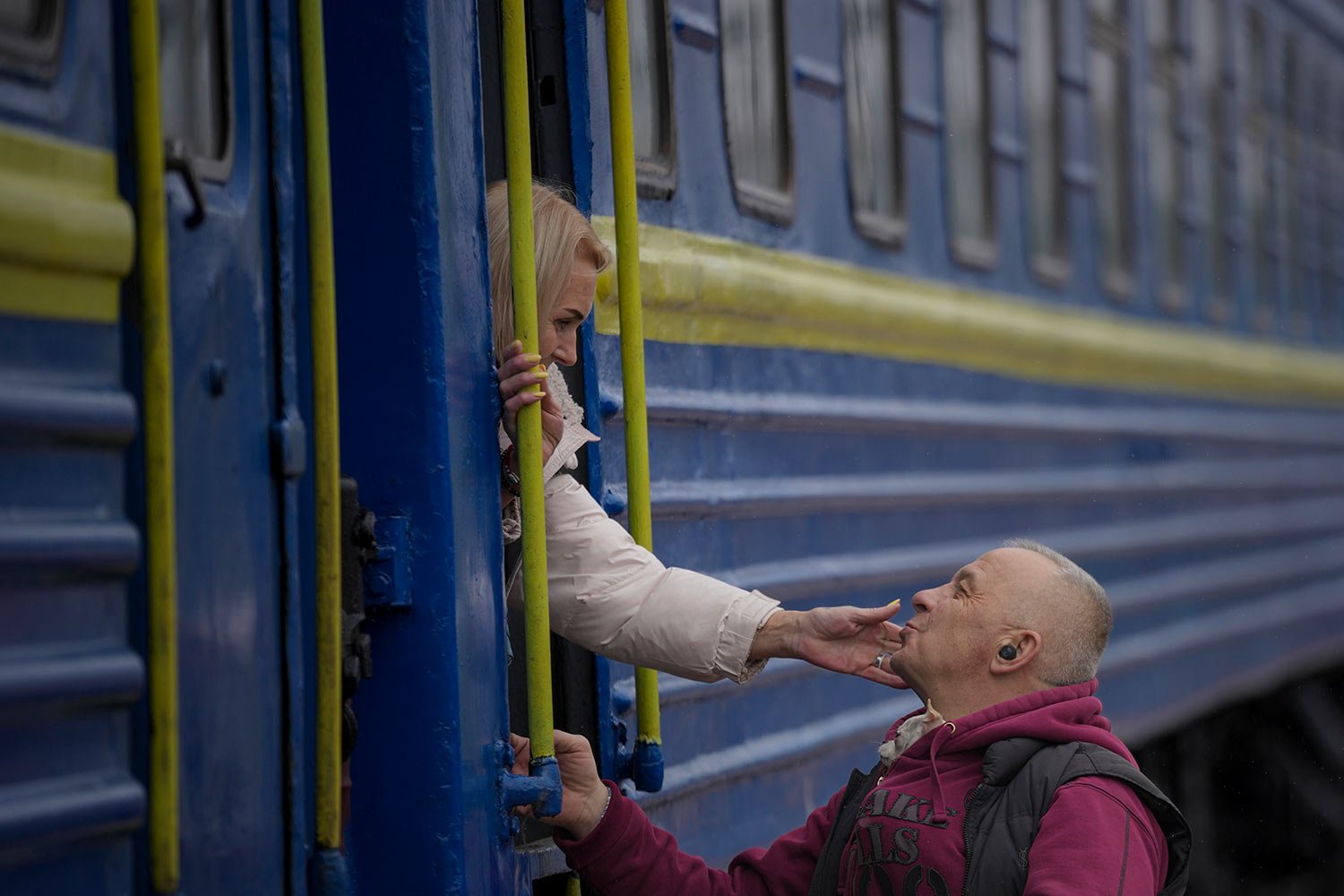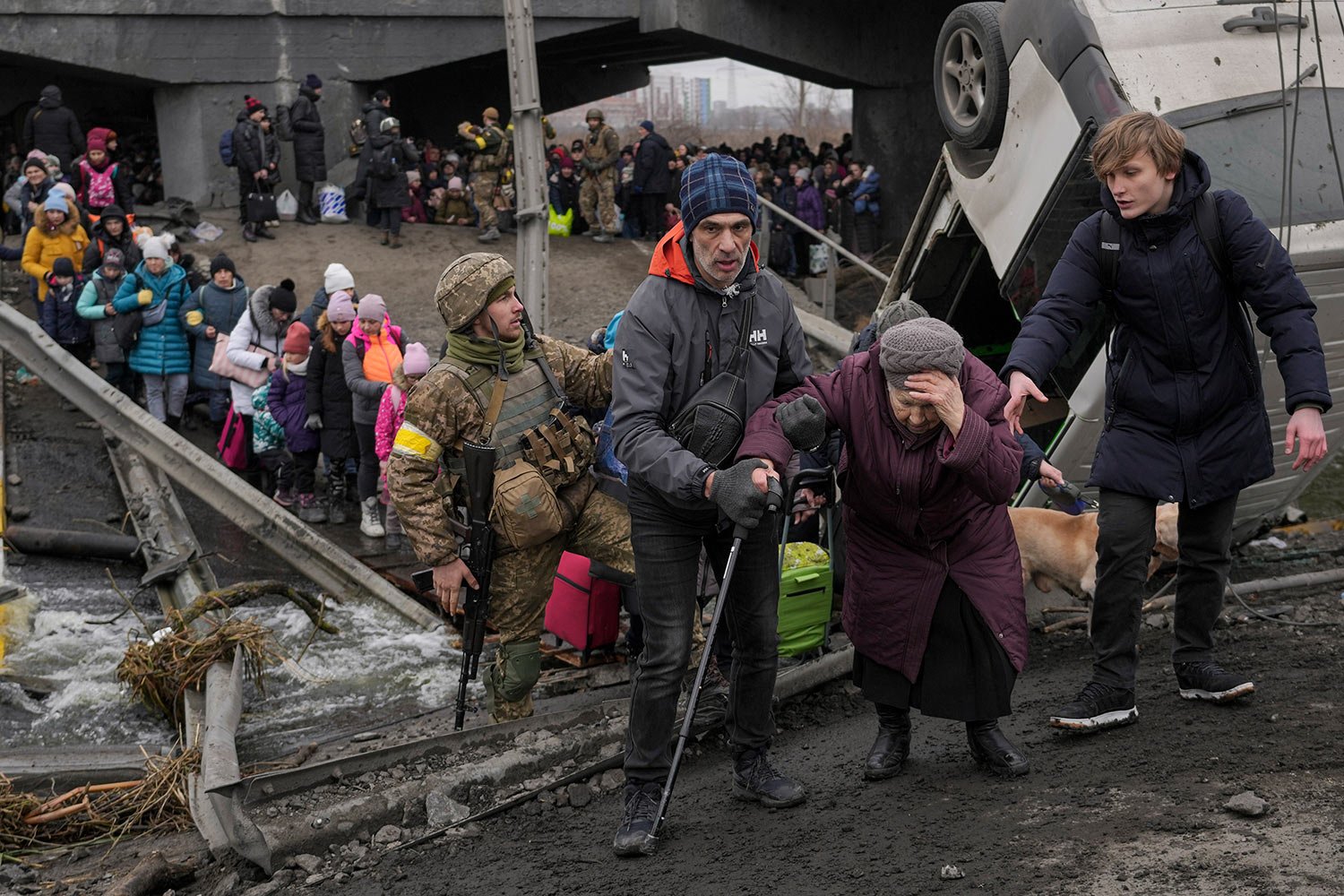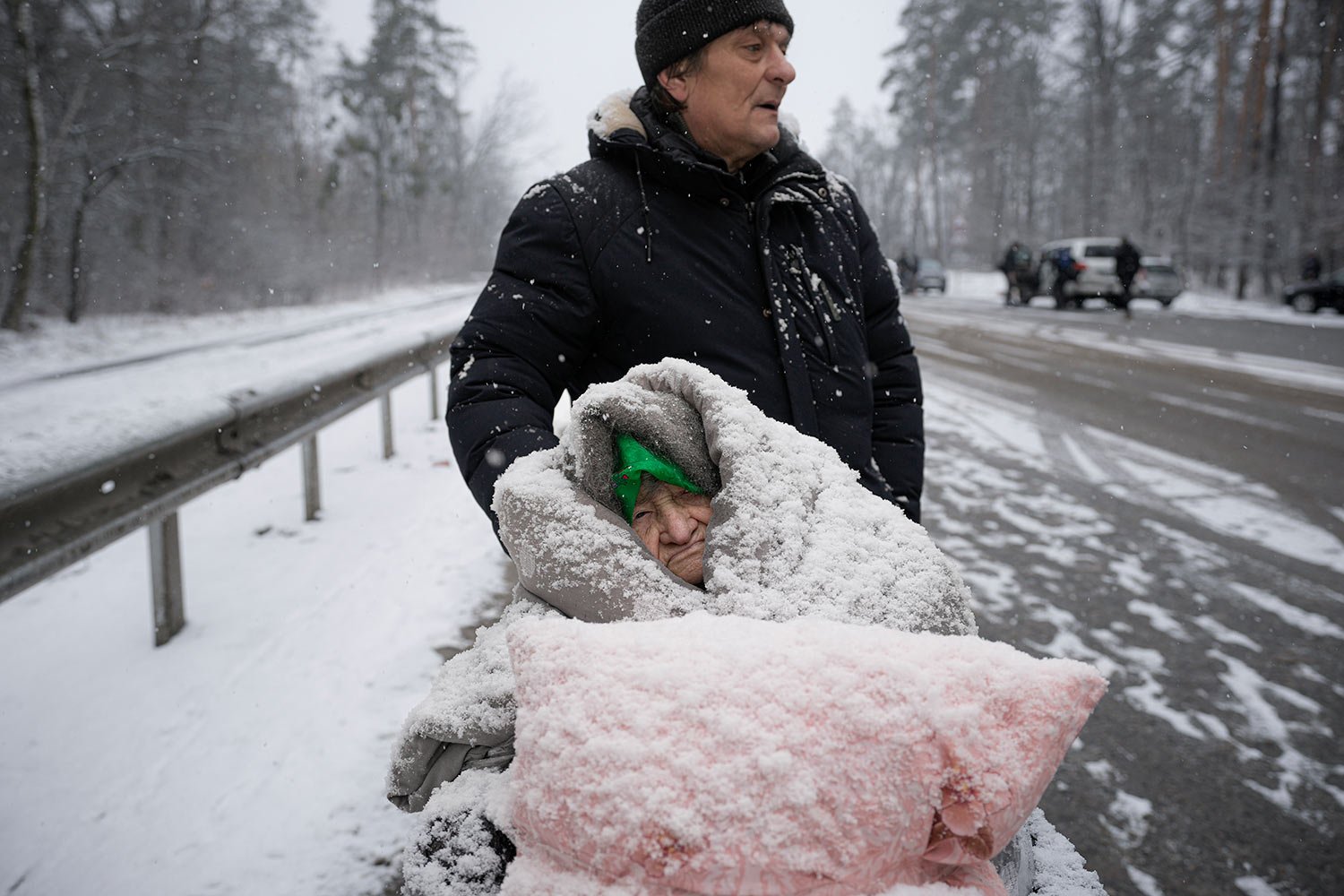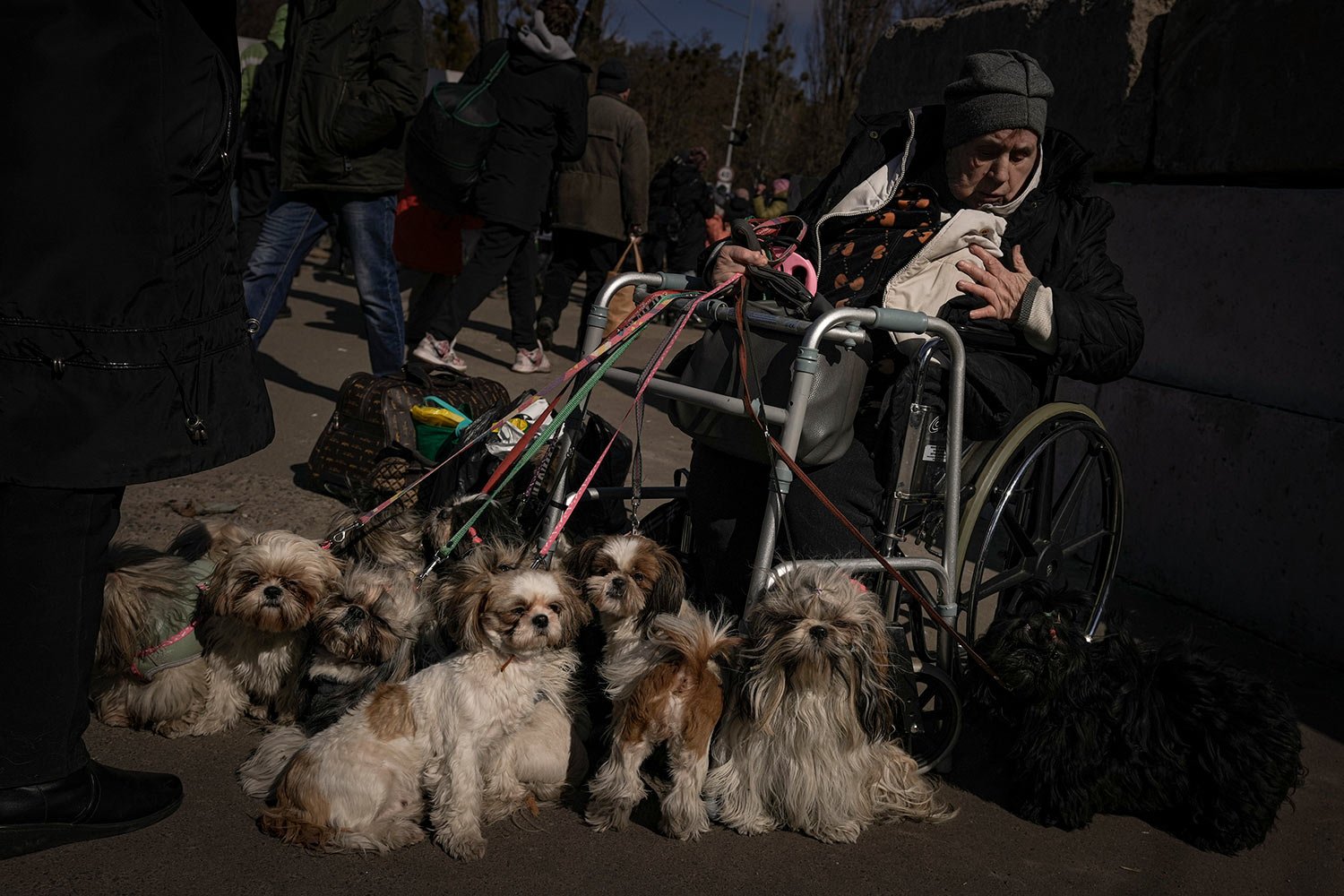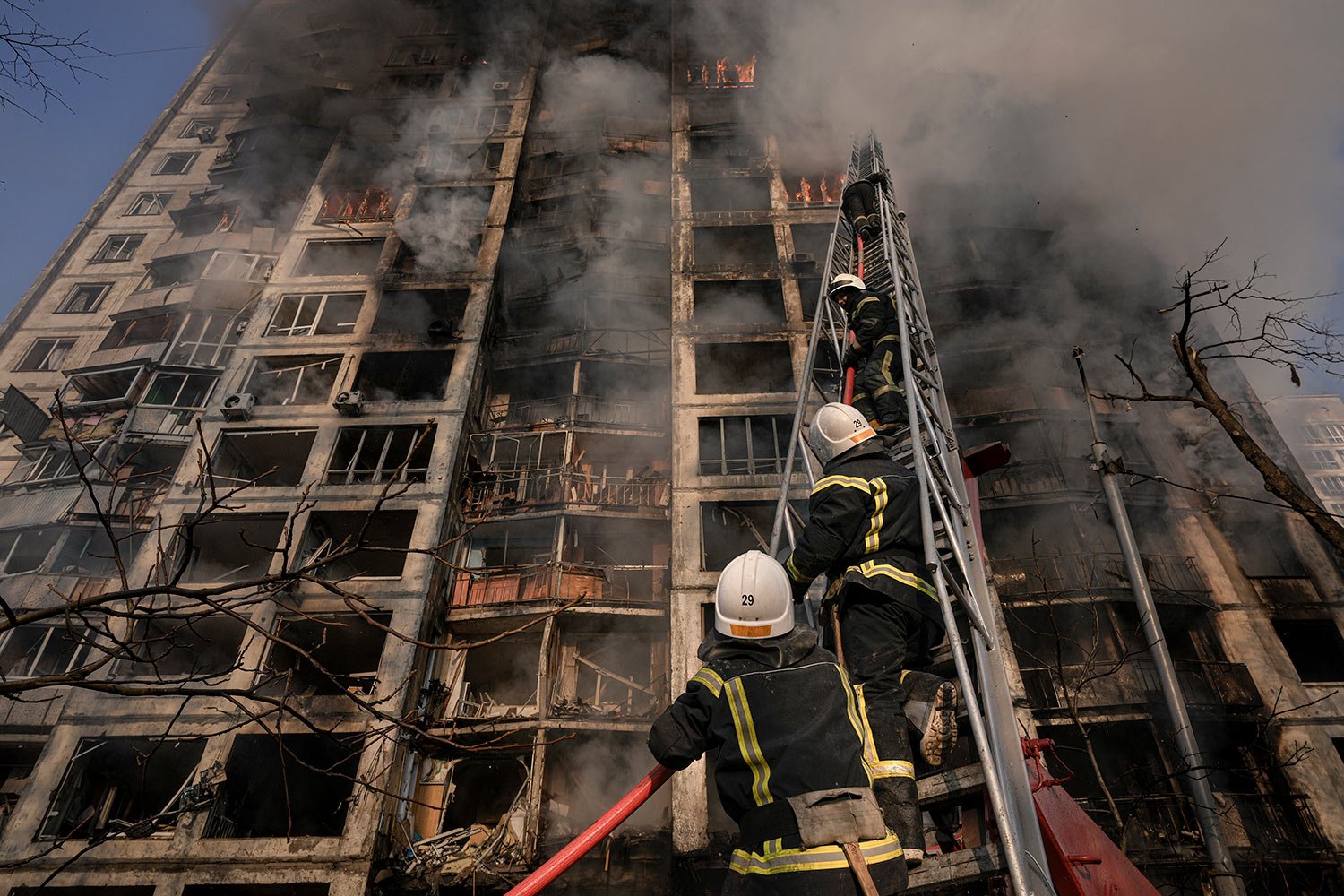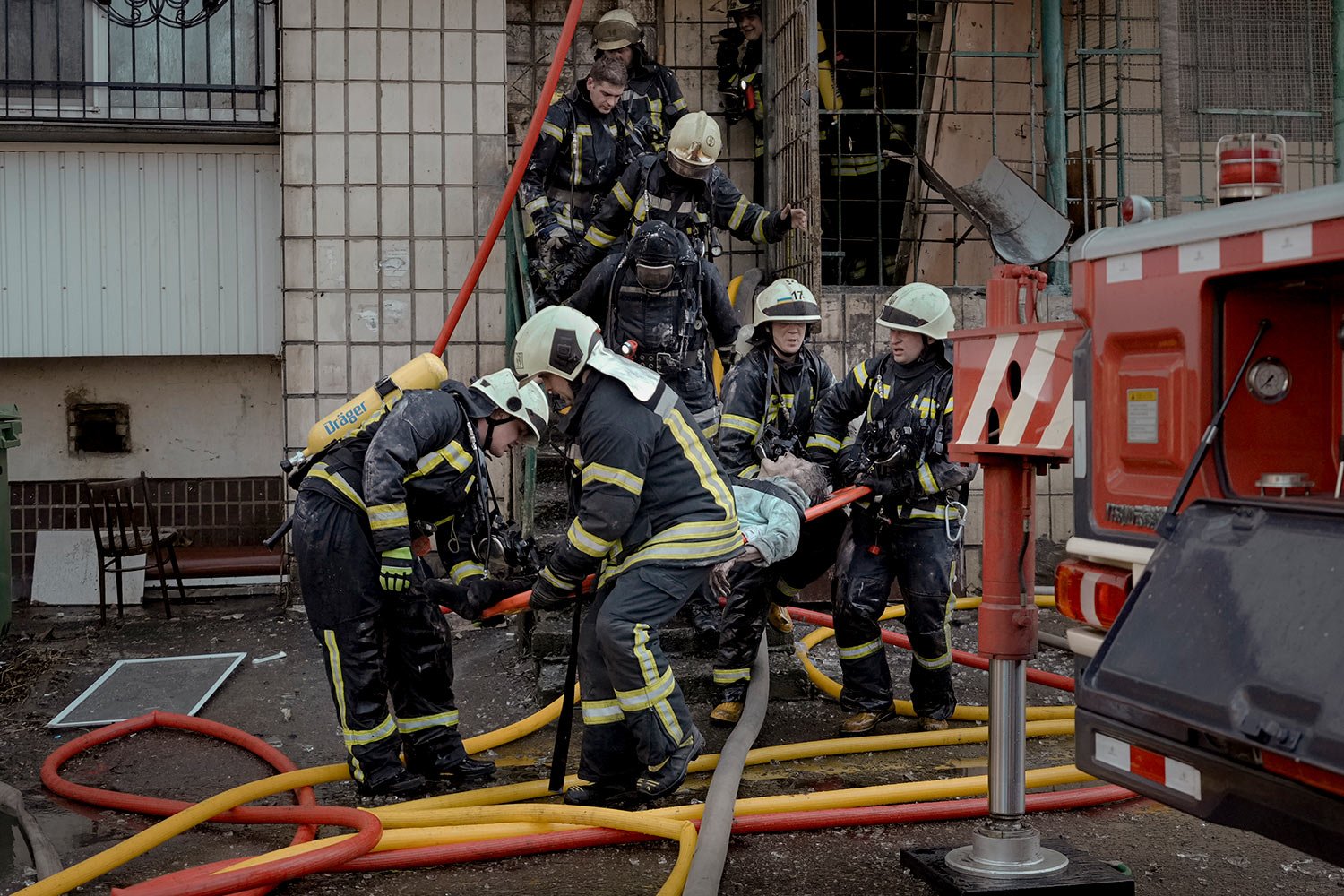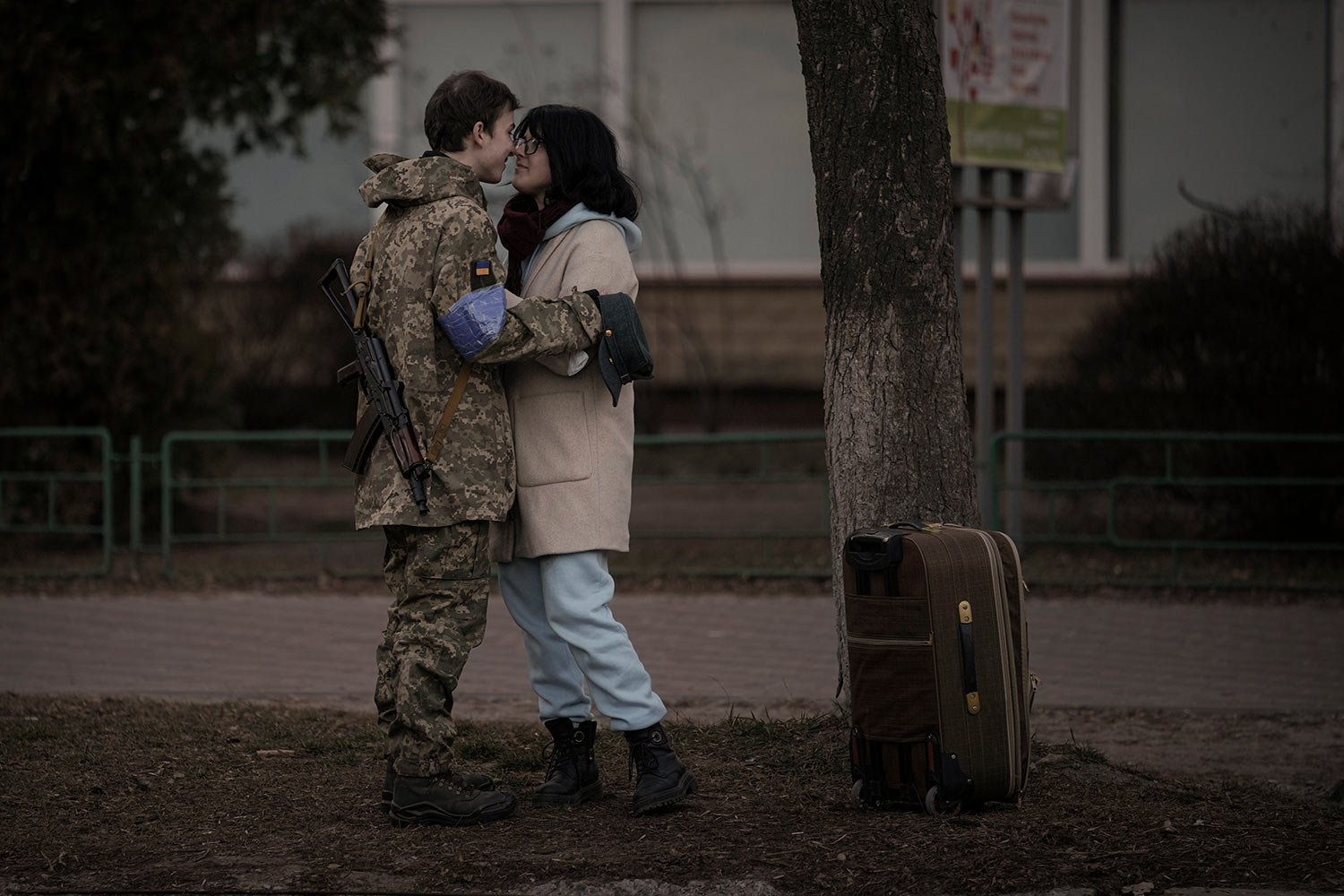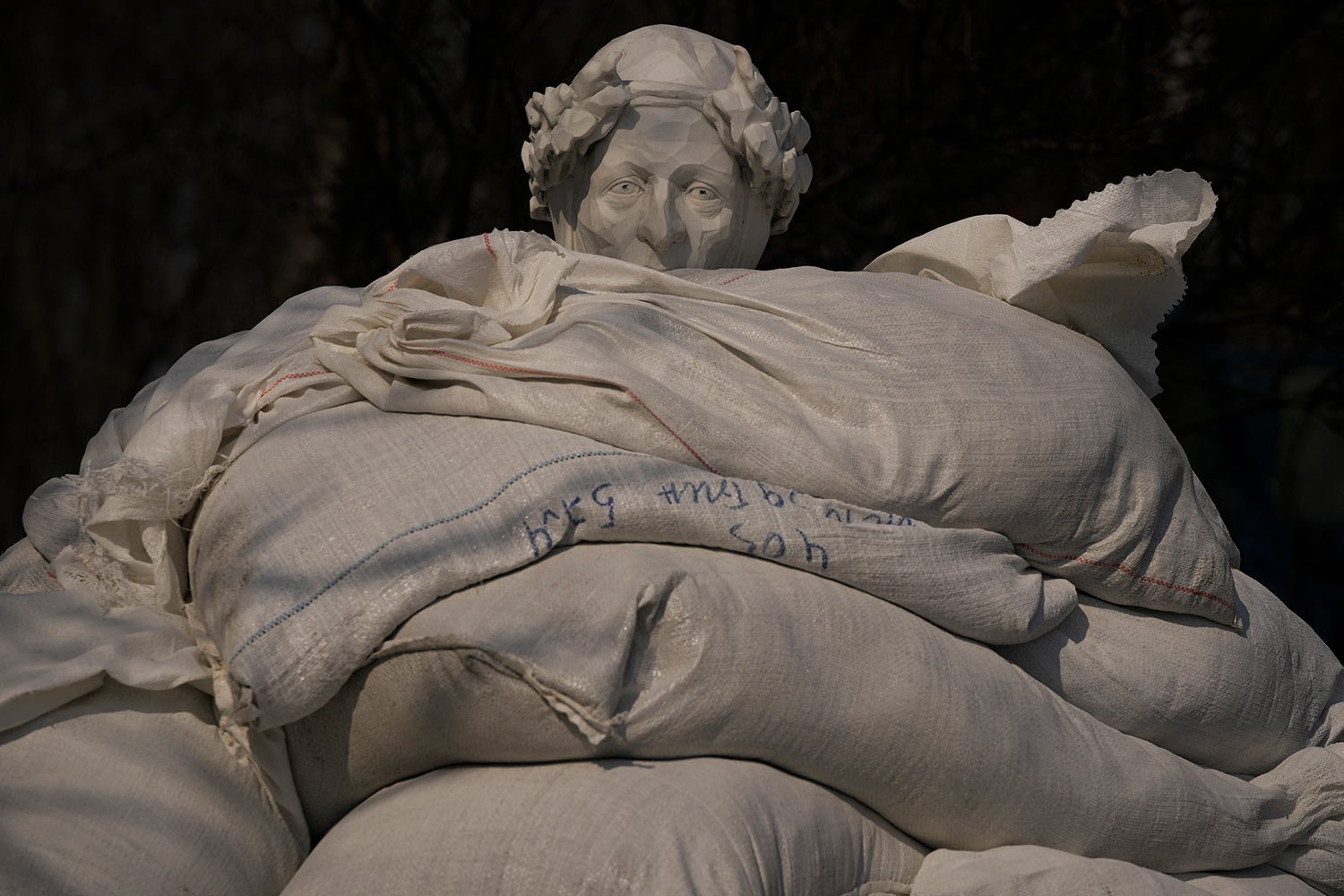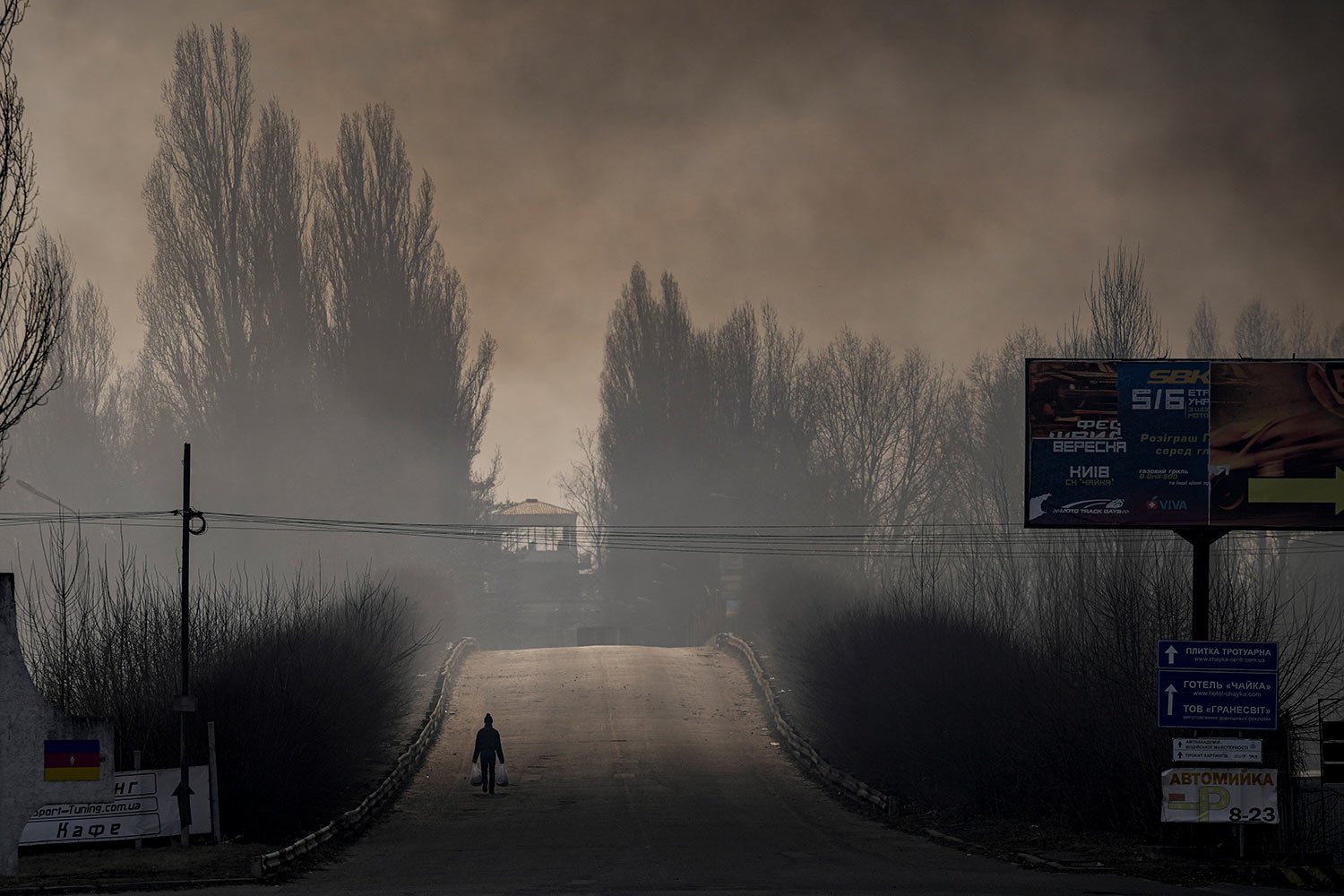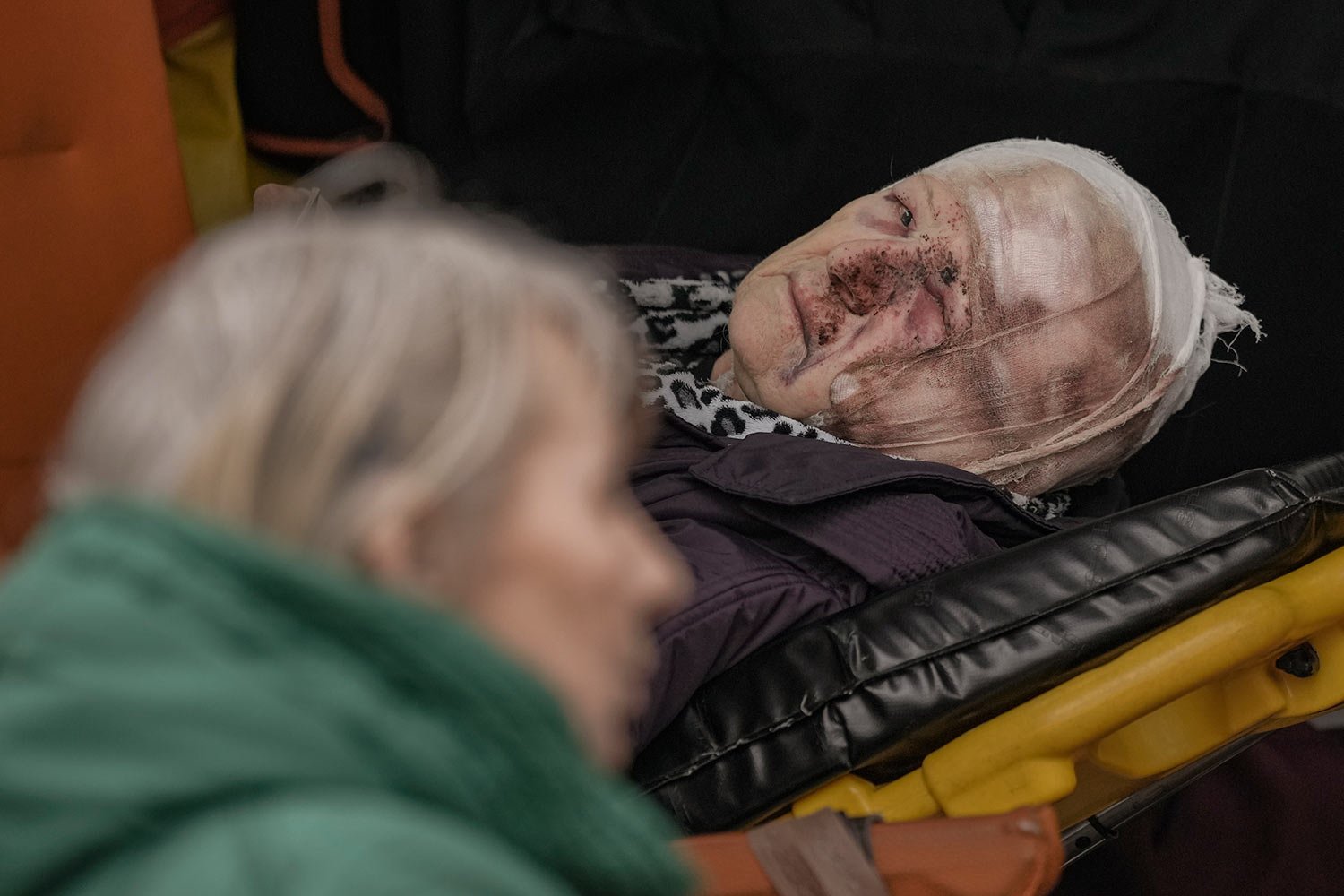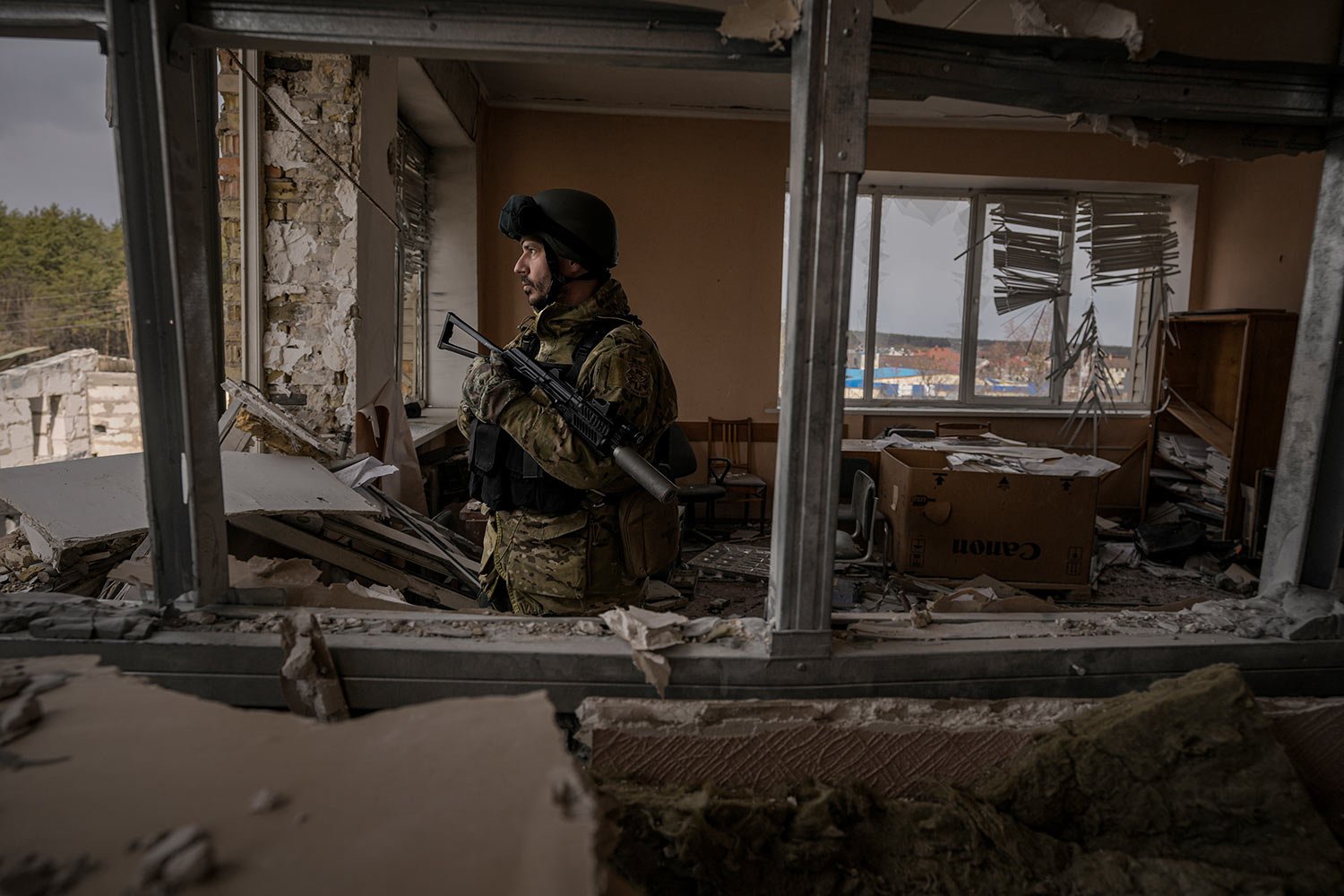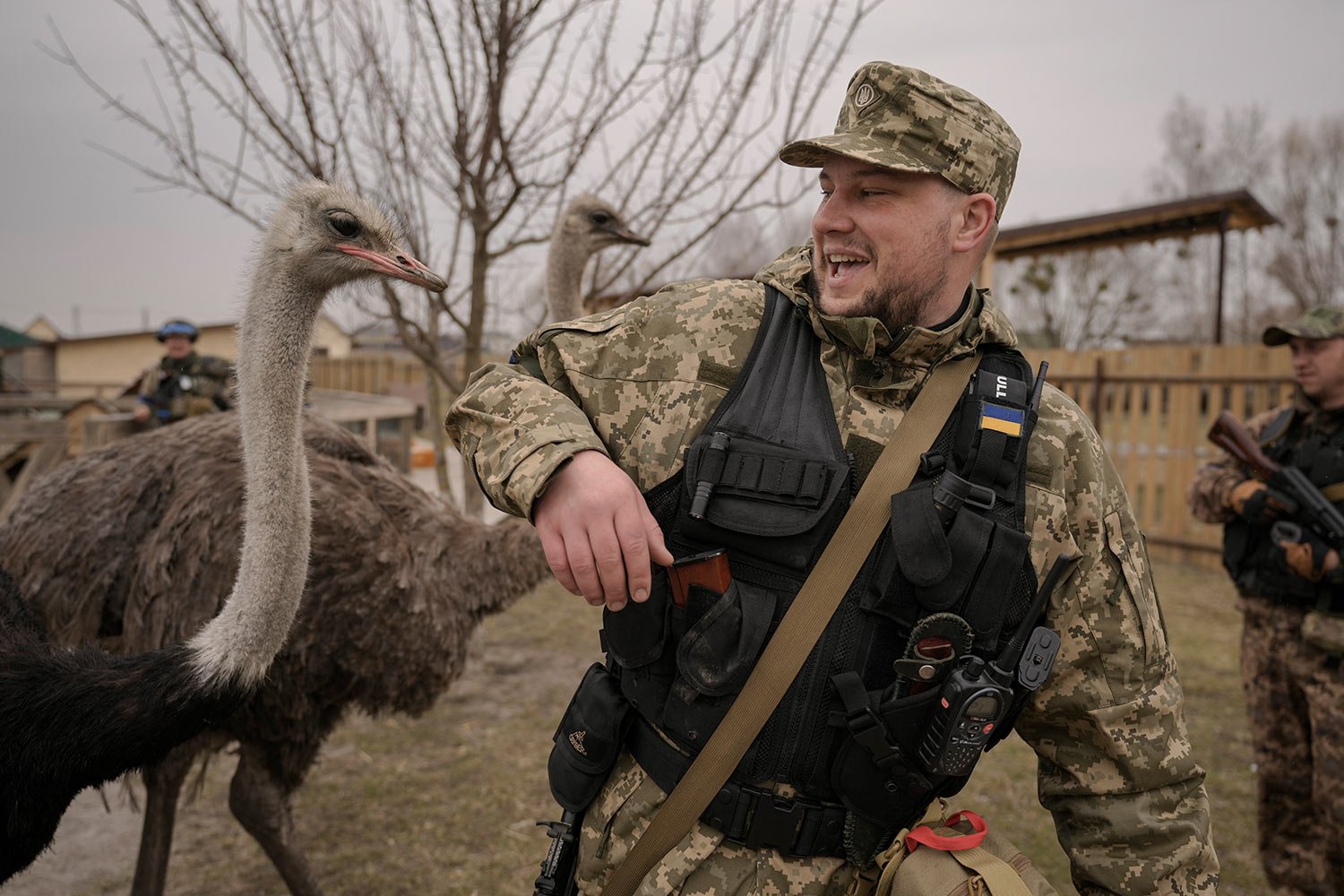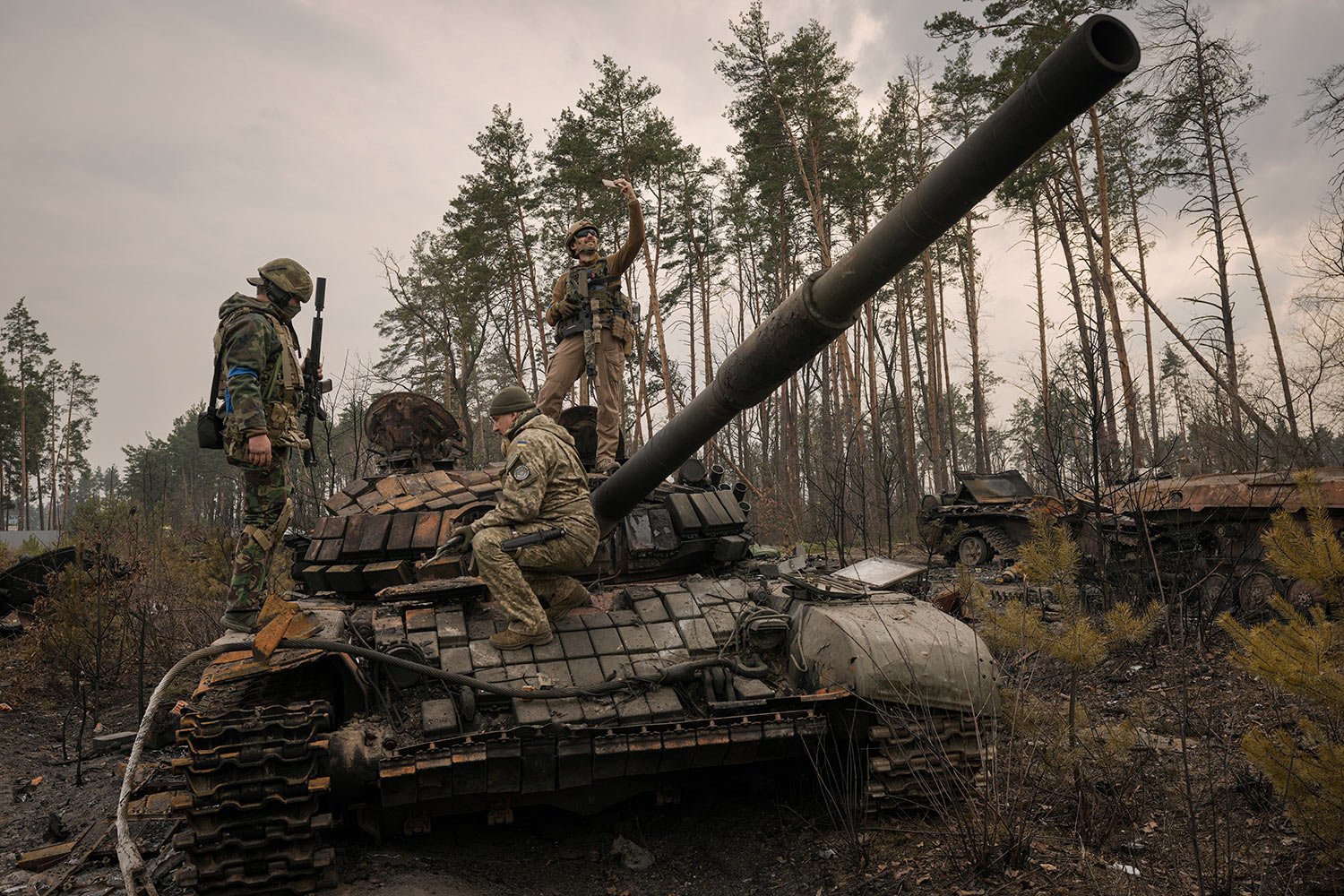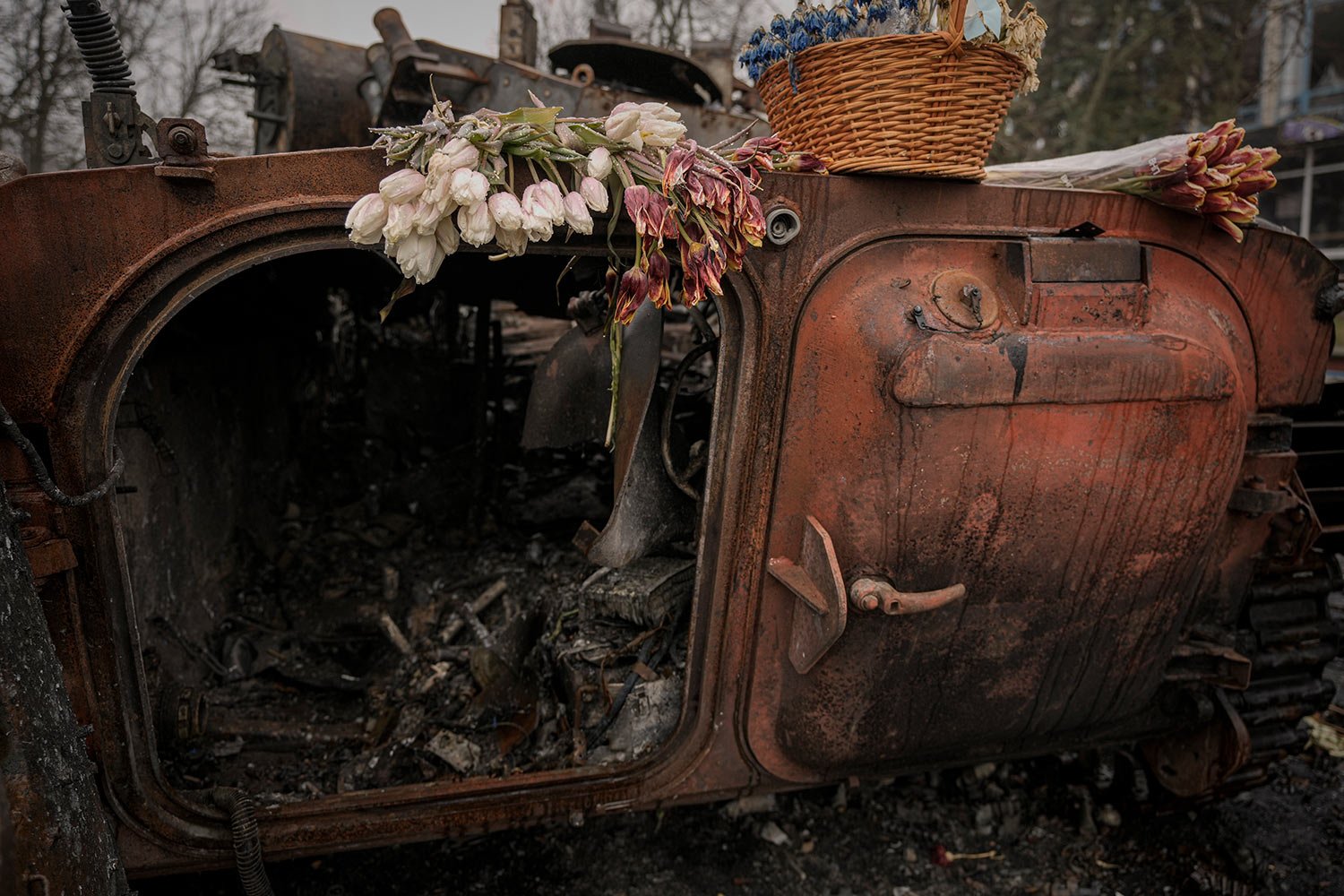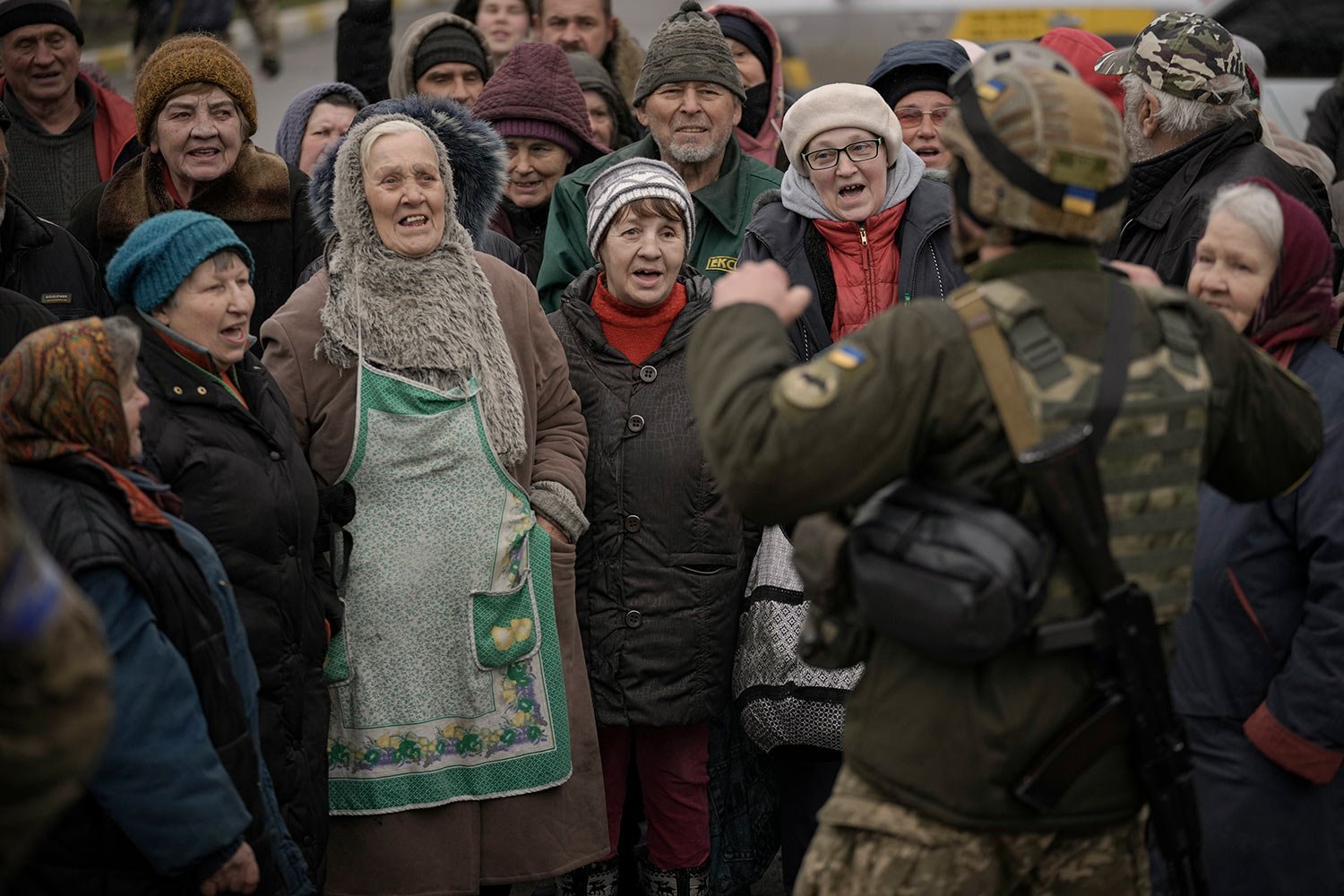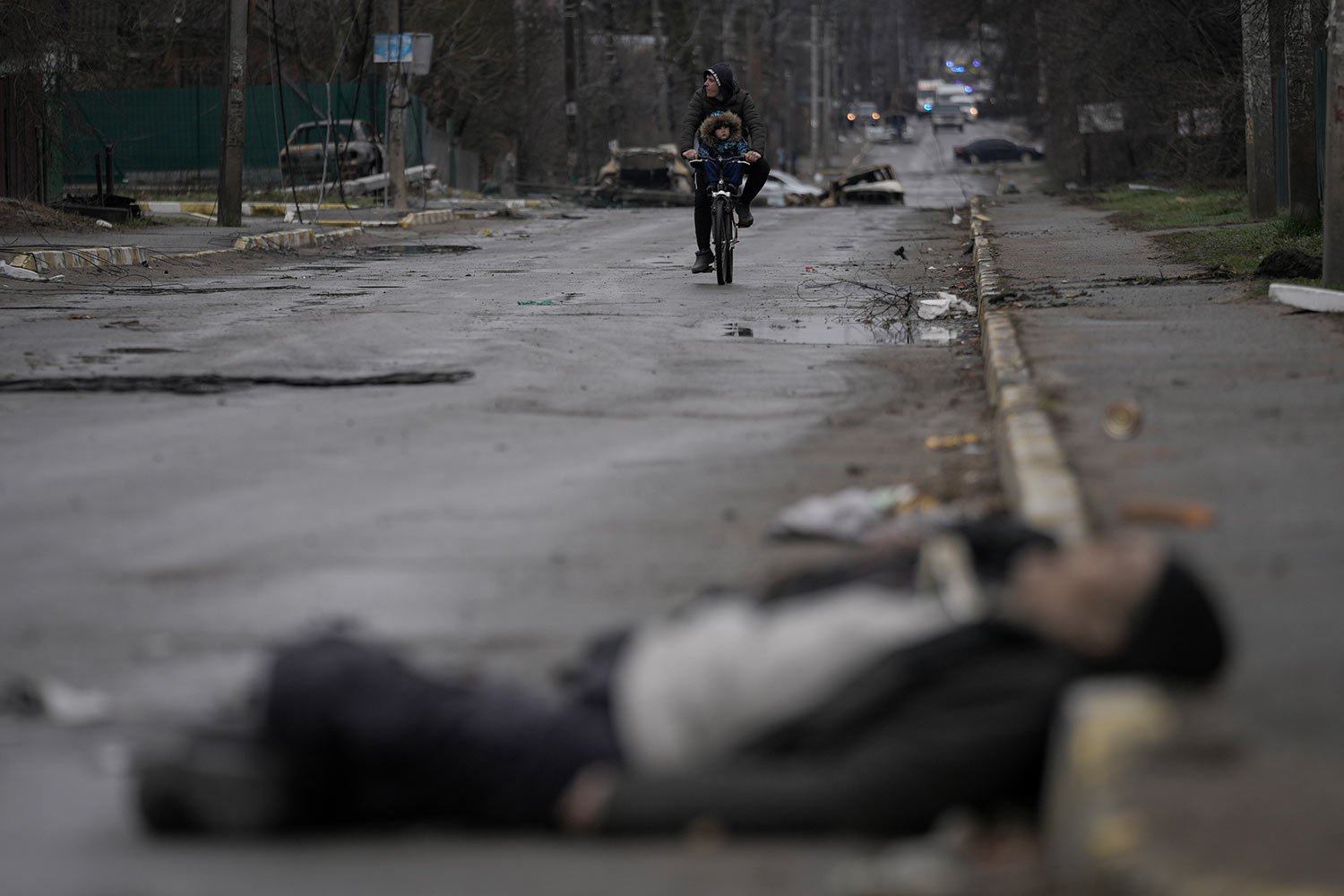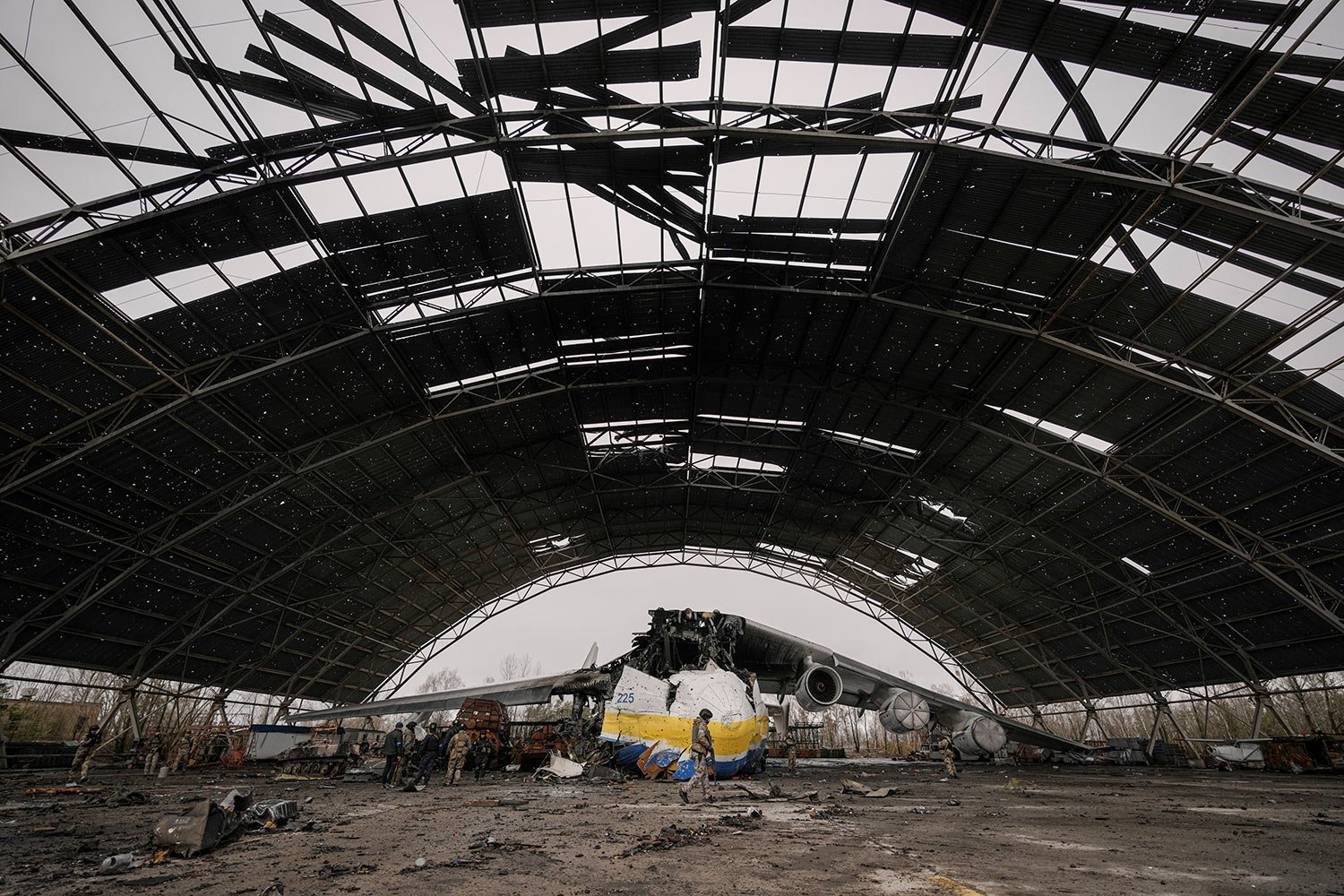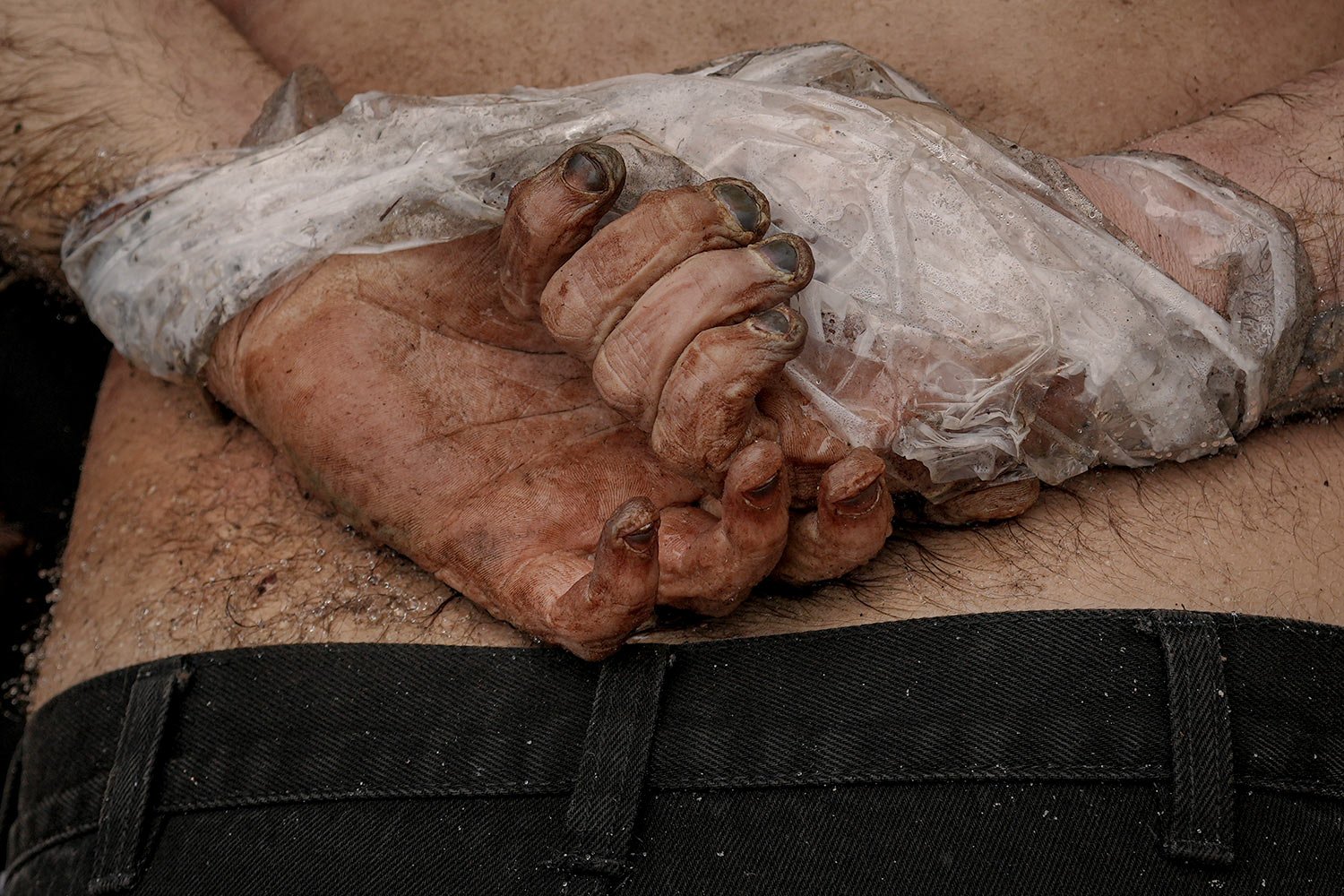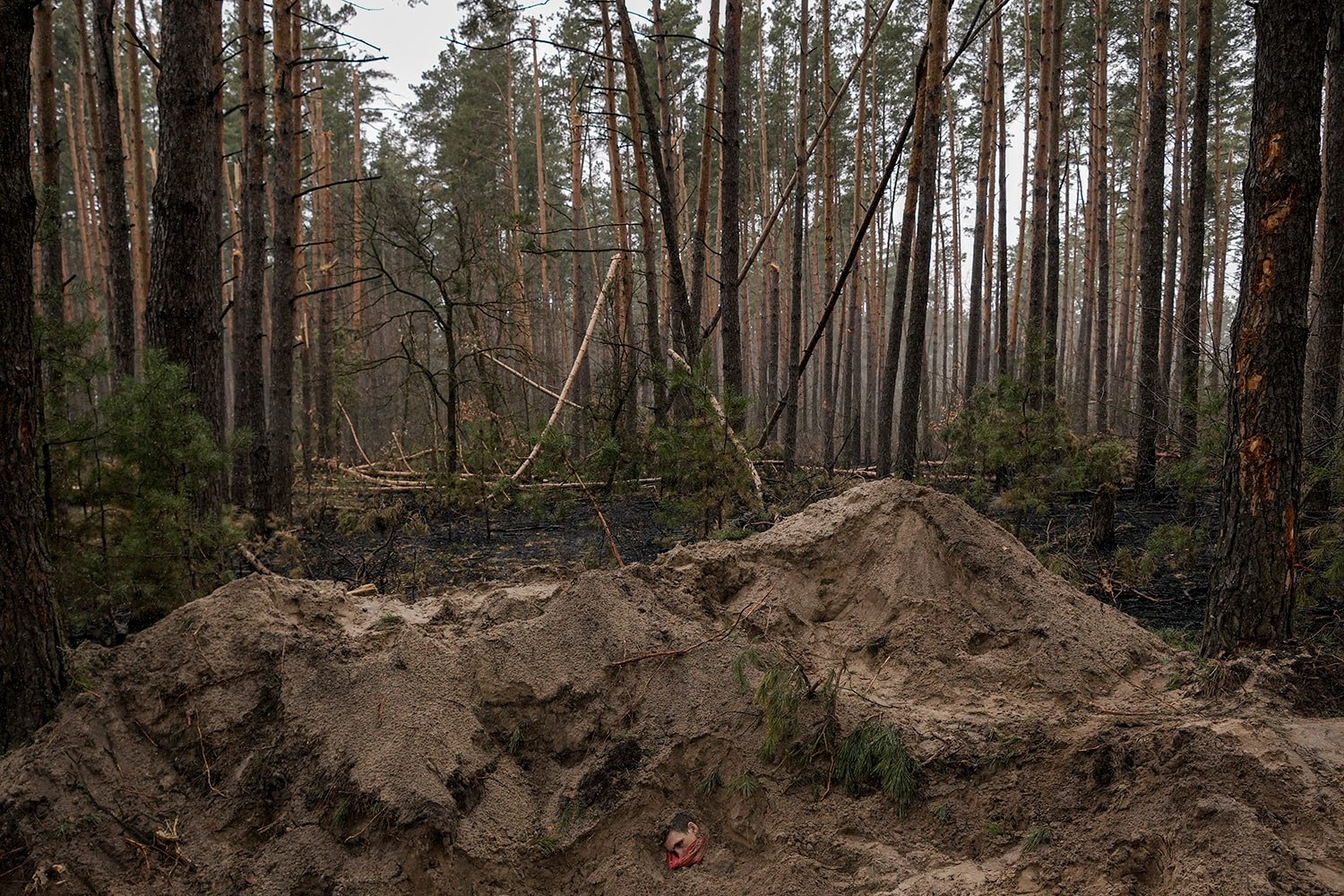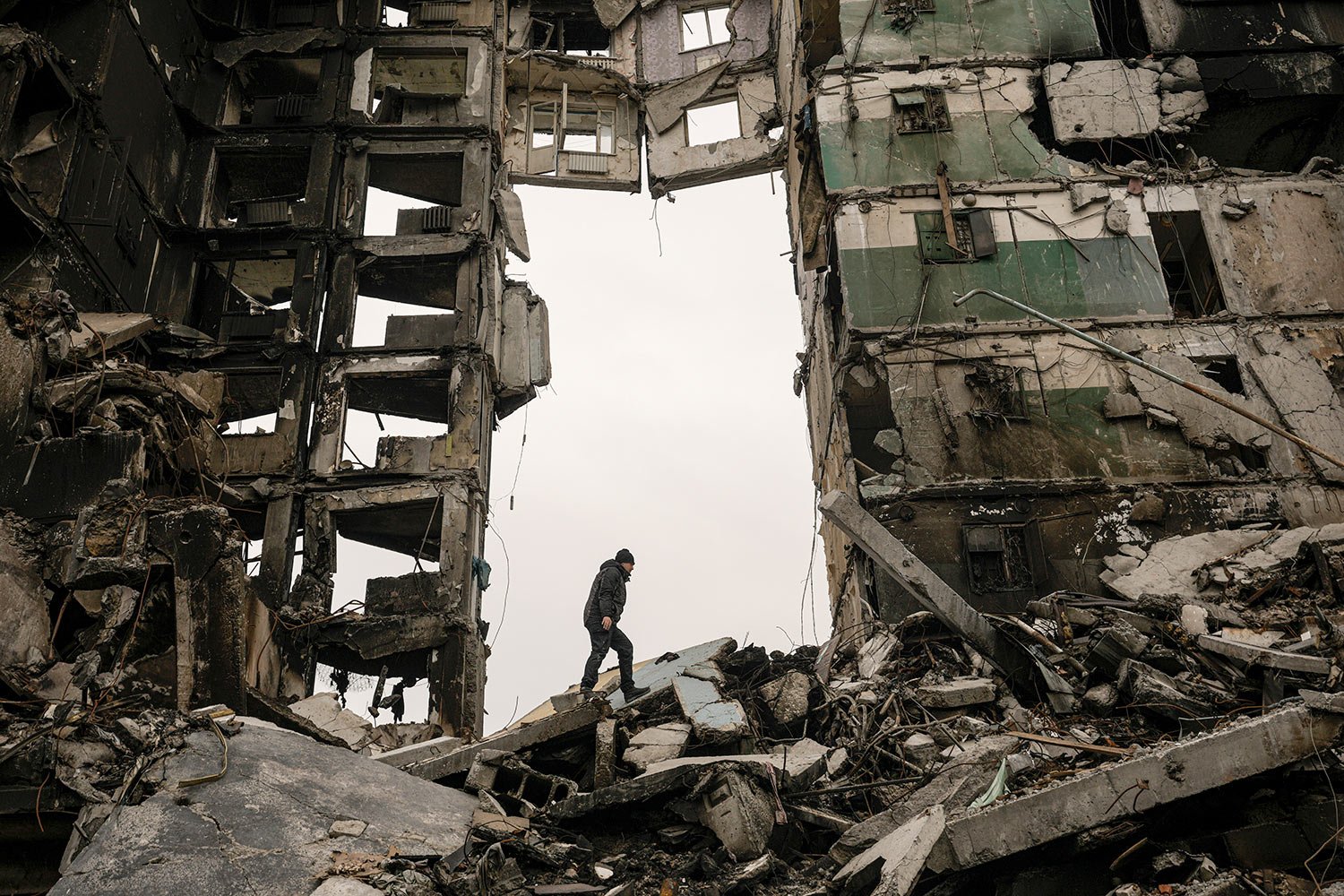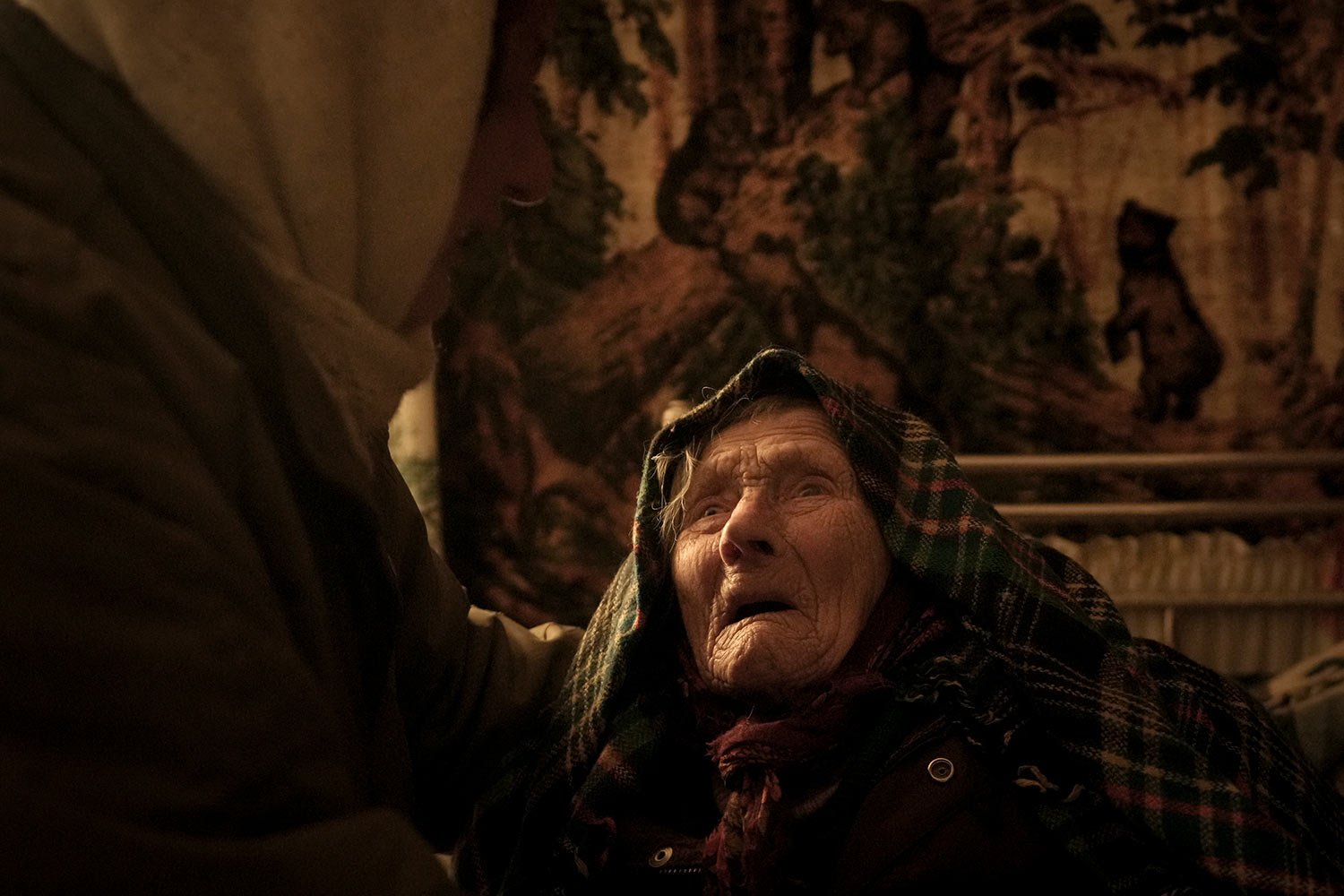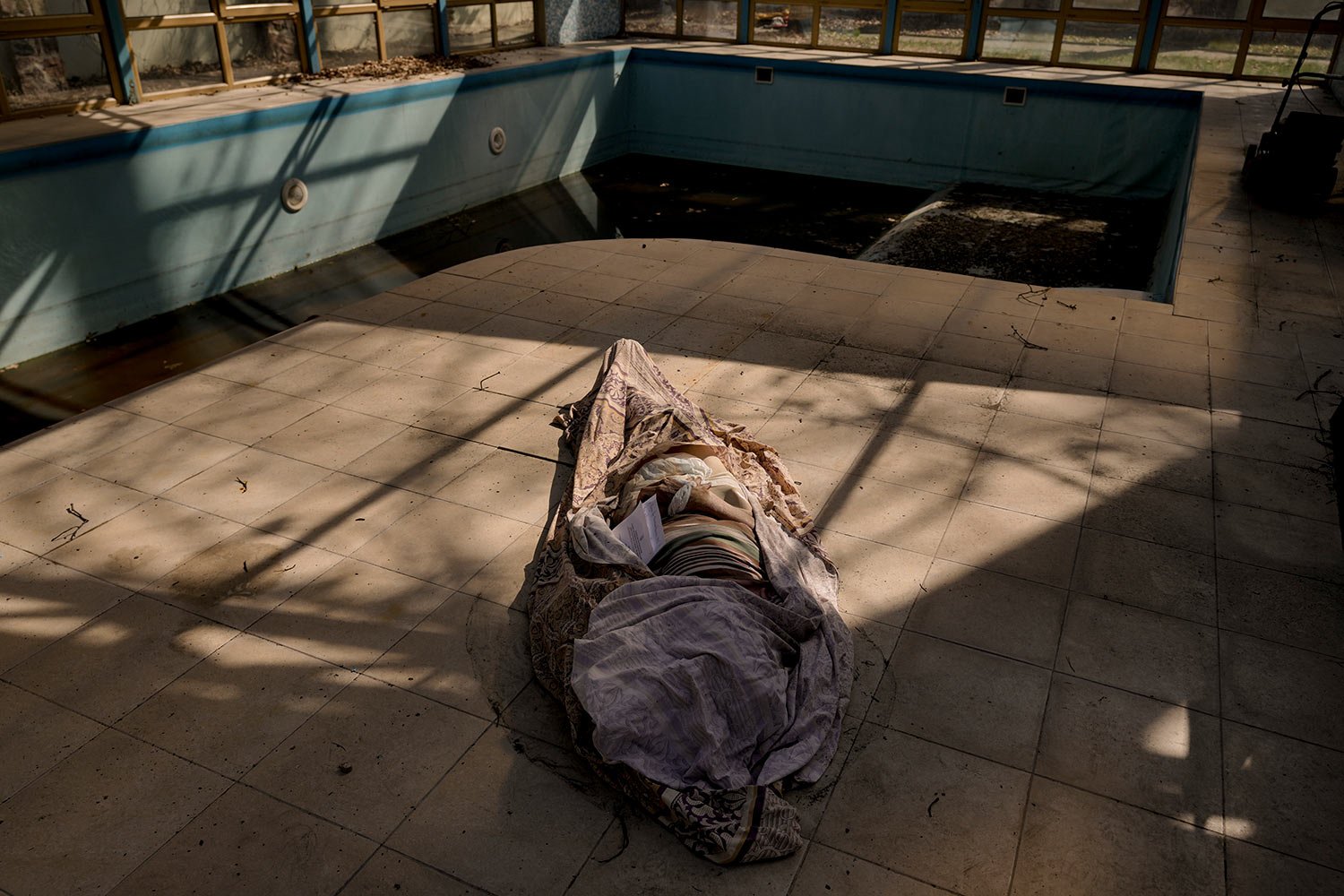10 weeks of Ukraine, documented by Vadim Ghirda
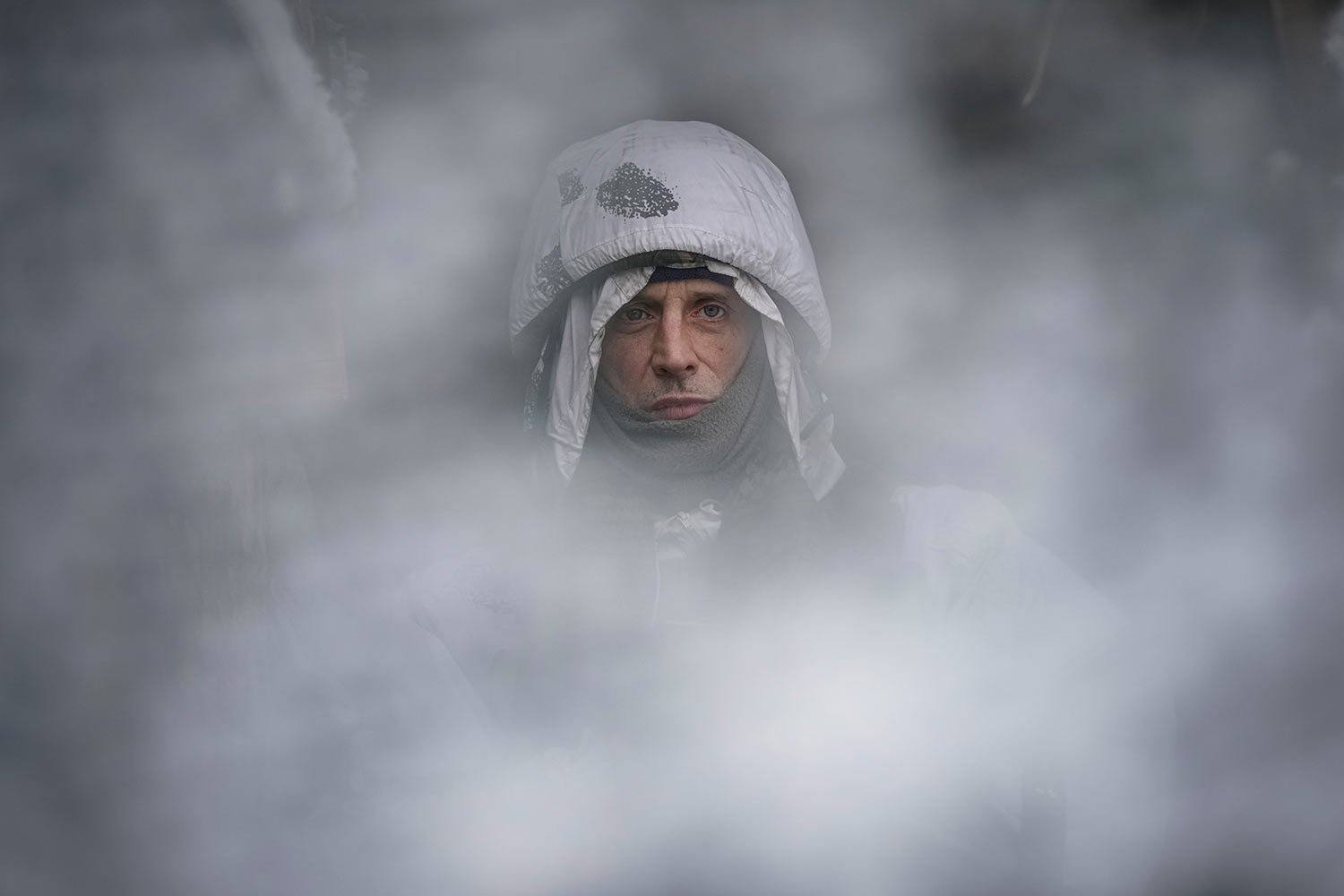
An elderly woman draped in snow. A child peering out a train window into the unknown. A pair of hands bound. From Jan. 25 to April 8, AP photographer Vadim Ghirda took some of the most recognizable images of Russia’s invasion of Ukraine.
Ghirda spent his earliest days in Ukraine's eastern regions of Donetsk and Luhansk as tensions rose over warnings that Russia planned to invade Ukraine. Russia at the time strenuously denied such plans, and then did invade on Feb. 24.
The first days of the invasion found Ghirda in bombarded Kharkiv, Ukraine’s second-largest city, crouching in the snow next to a dead soldier and a destroyed Russian rocket launcher.
Then he was on to Kyiv, the Ukrainian capital, to document the frantic crush of people trying to leave the country while they still could. His camera captured a serene-looking baby in the middle of the anxious crowd. Ghirda was there again as the flight from the capital region later became more dangerous, photographing an elderly woman clutching her head after crossing the Irpin River under a bridge that had been destroyed.
A Ukrainian serviceman walks in a trench at a frontline position in the Donetsk region, eastern Ukraine, Jan. 31, 2022. (AP Photo/Vadim Ghirda)
He also documented some of the horrors found in the northern Ukrainian town of Bucha, where Ukrainian officials say Russian soldiers committed war crimes before withdrawing.
Amid the destruction of war, Ghirda found gentle moments. A woman with a dozen dogs at a sunny triage point after leaving Irpin. A teenager rubbing noses with her soldier boyfriend, a suitcase nearby. A soldier trying to avoid being bitten by an ostrich in one of the more unusual evacuation attempts of the war, at a zoo on the outskirts of Kyiv.
He also found flowers placed on a charred Ukrainian military vehicle on April 1, a sign of mourning but also, perhaps, one of spring as well.
“What I remember is being in awe at how people cope with this and try to not leave a soul behind, be it hamster, cat or huge dog. And, leaving on a crowded train home with super heavy suitcases, I thought how would I feel if a photographer would now stare at me through his lens as I struggle," Ghirda says. "And again I was in awe at the kindness and generosity of all those people who offered me the honor to share with the world their personal tragedy.”

